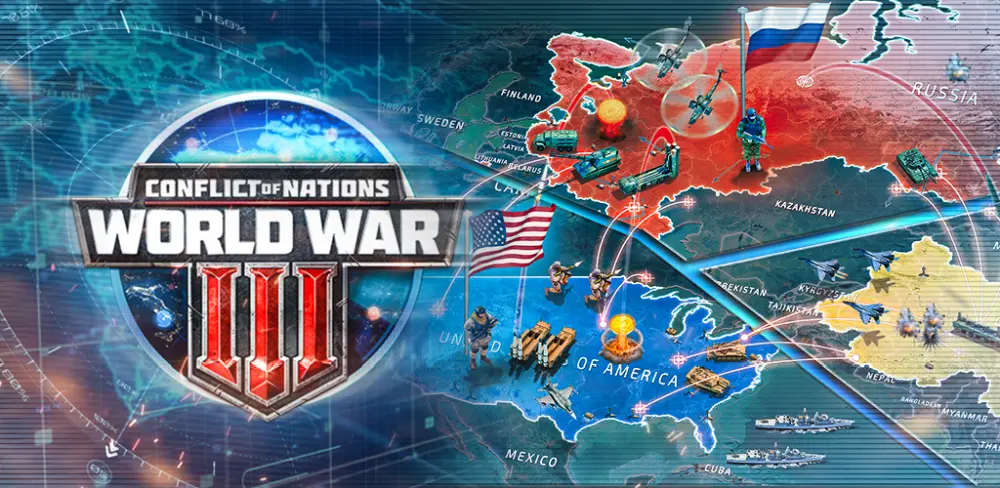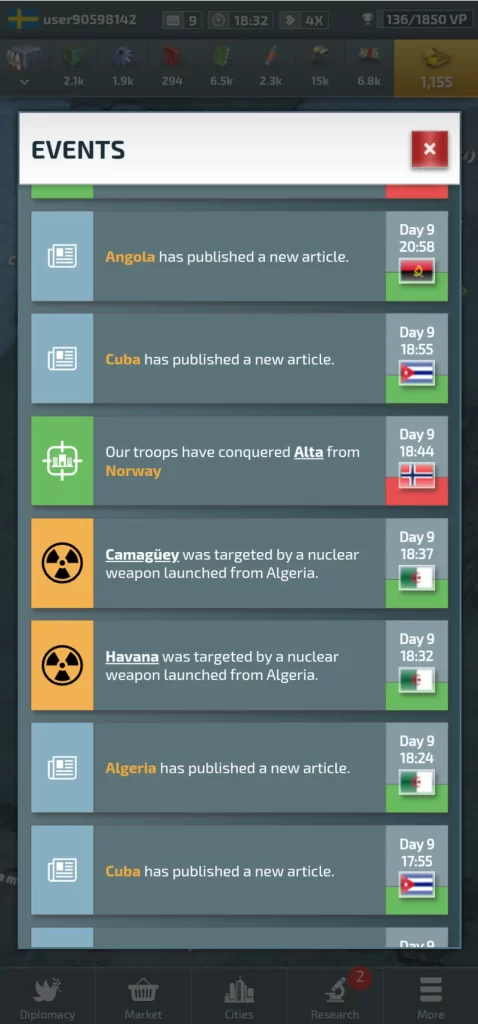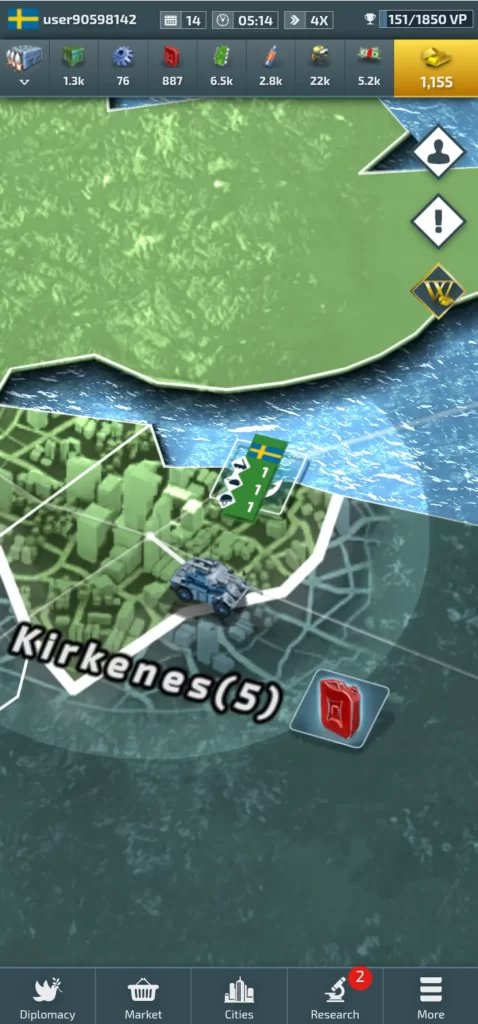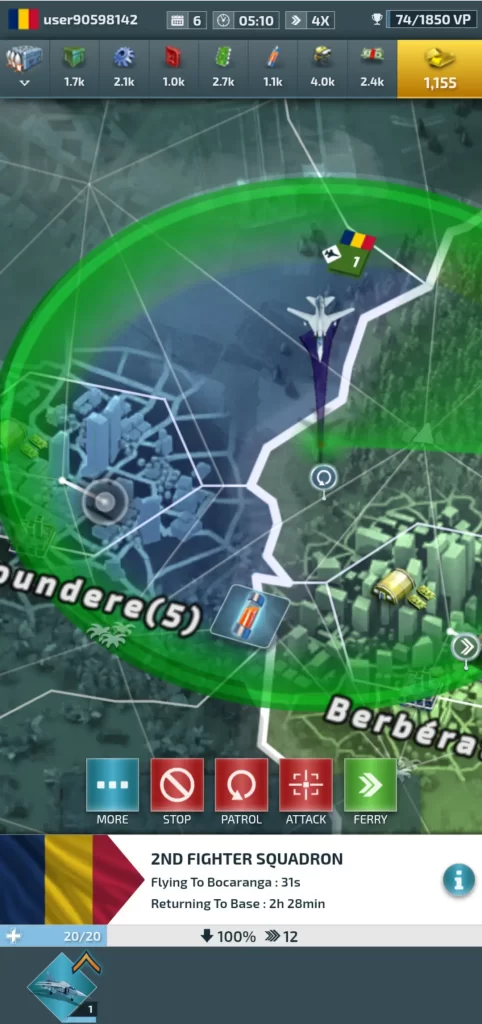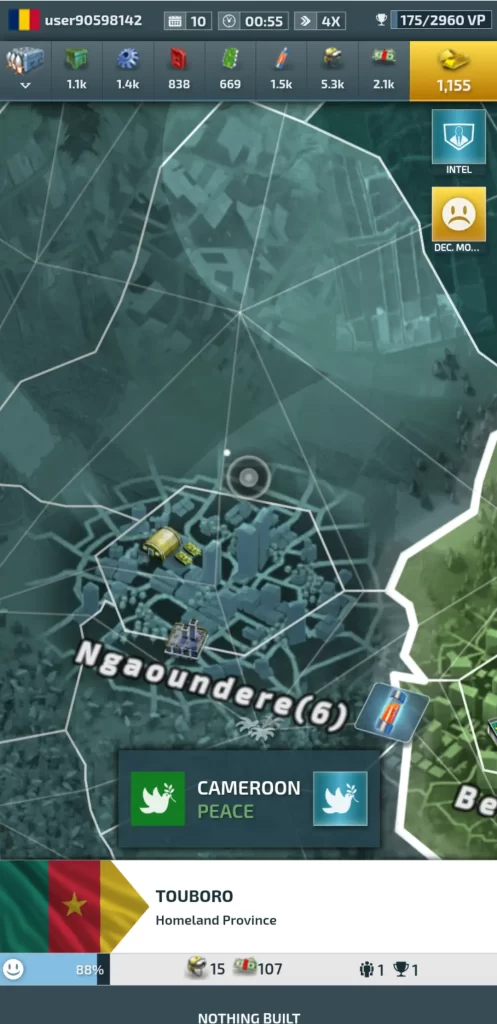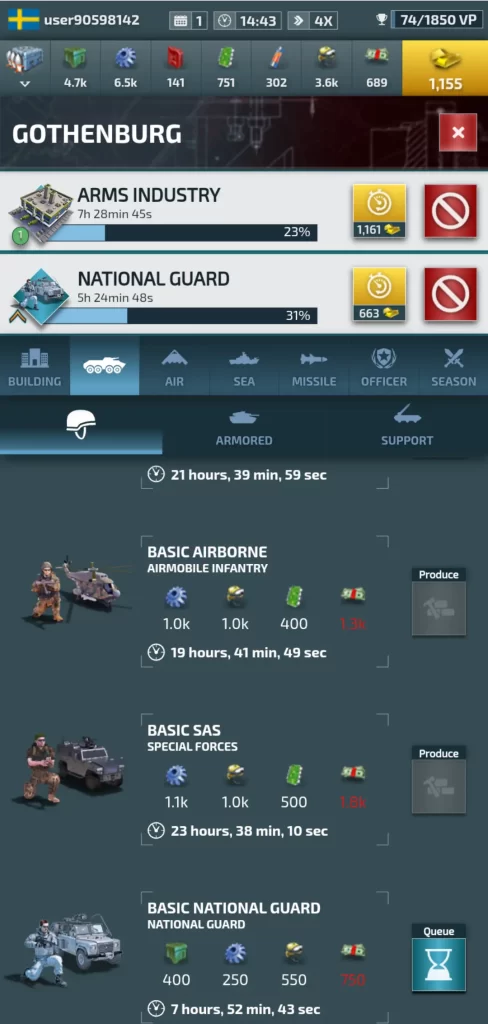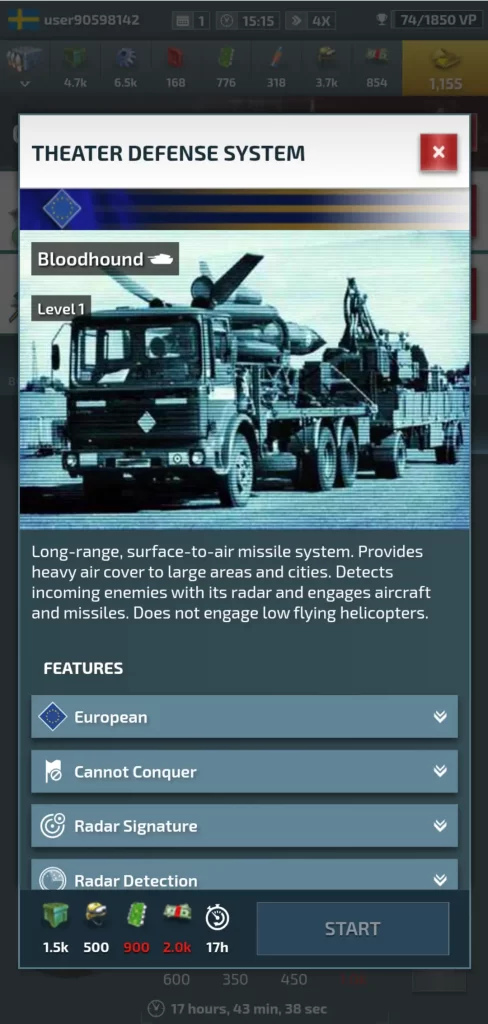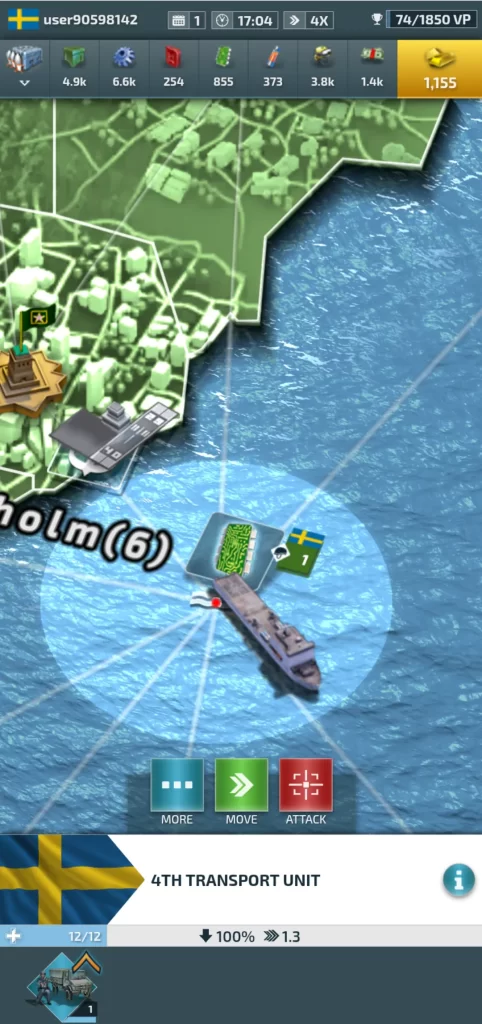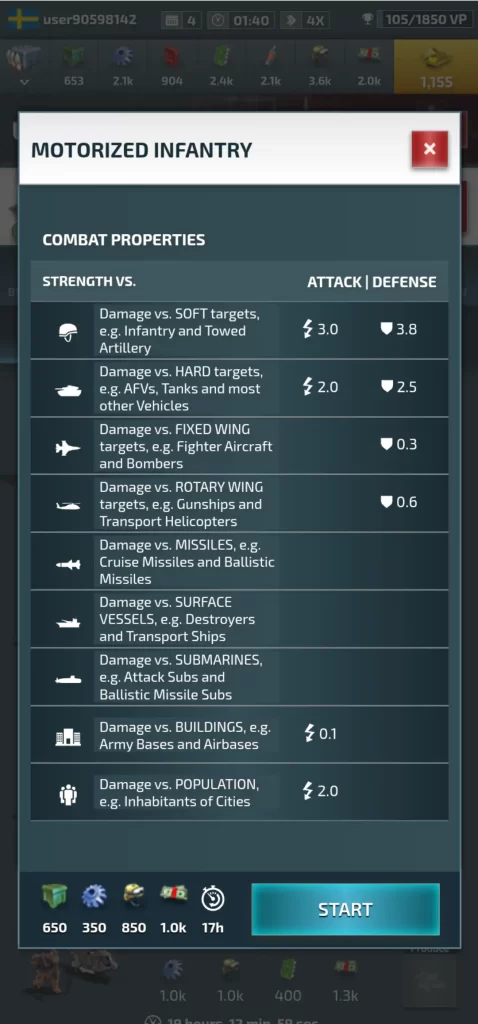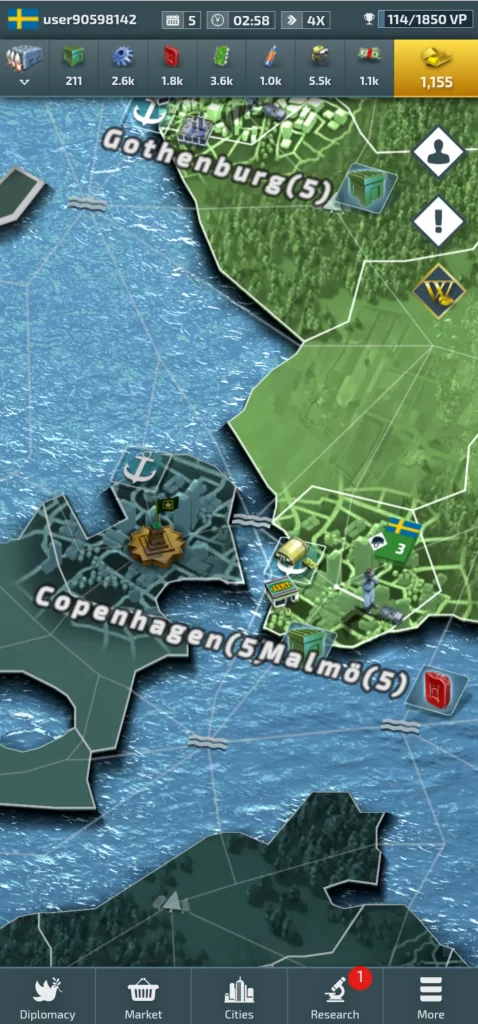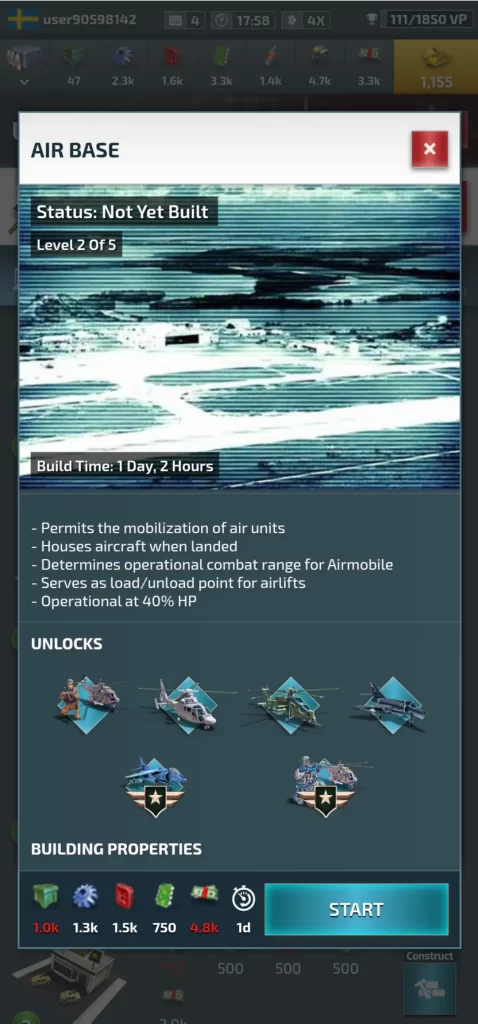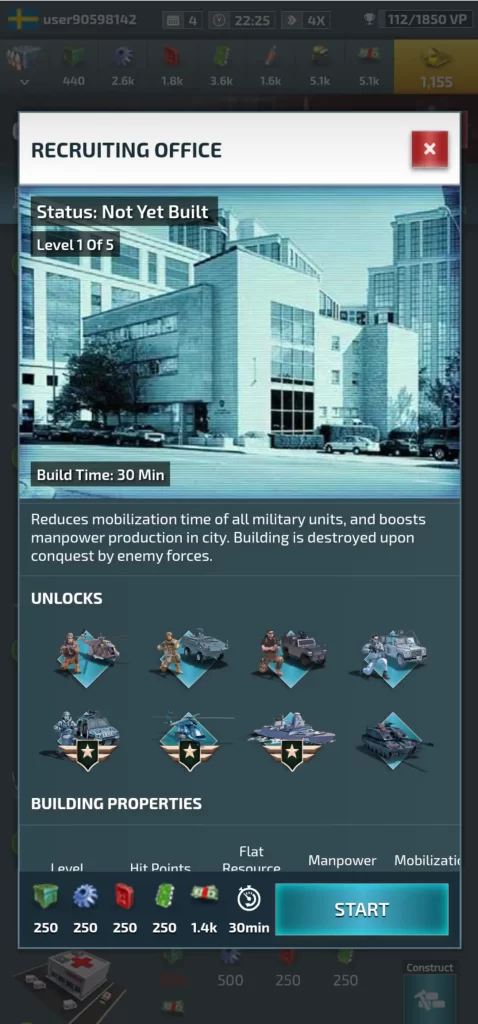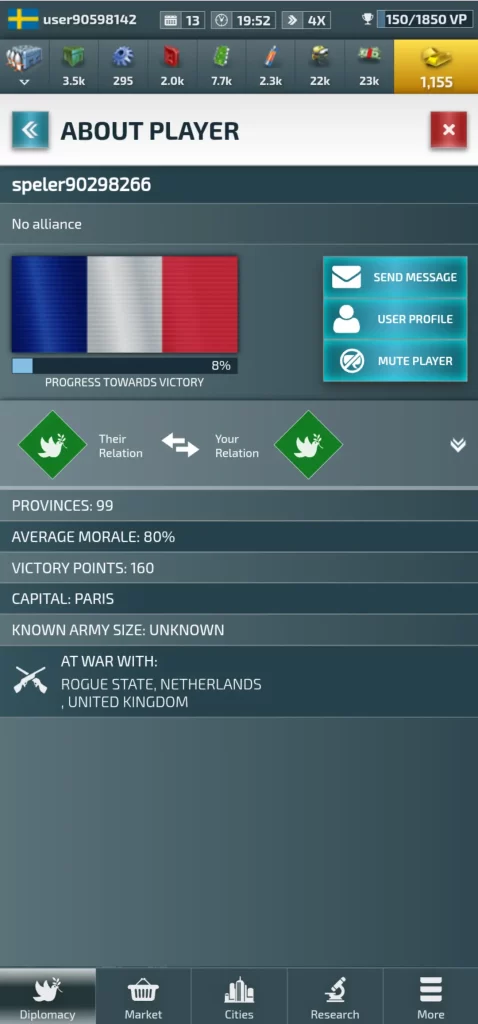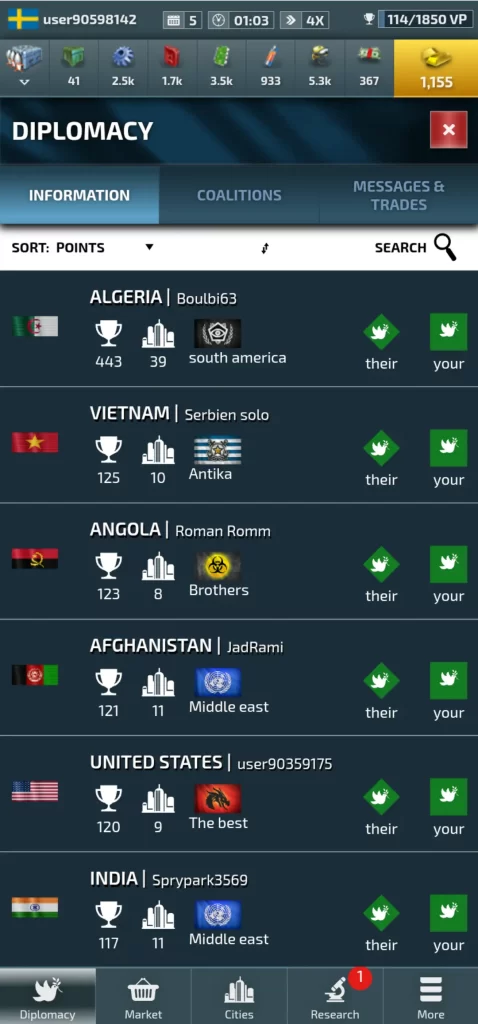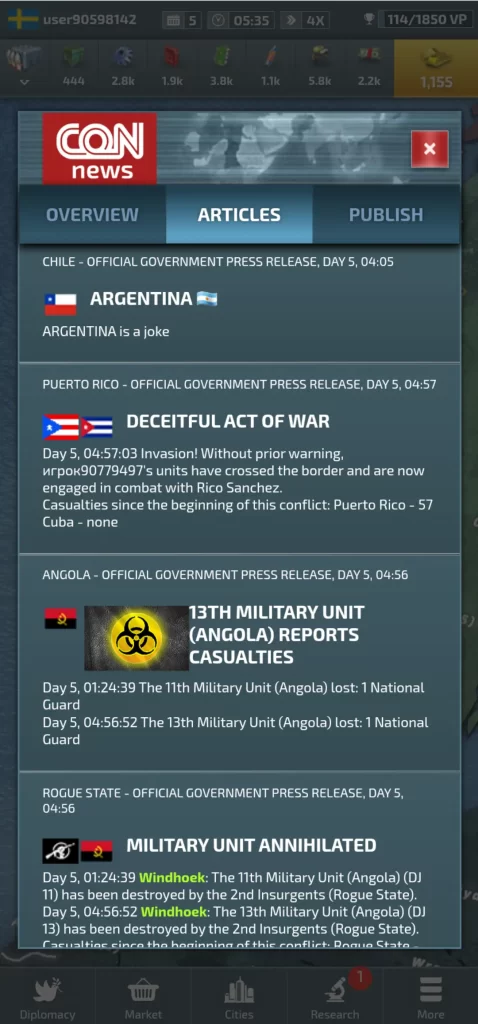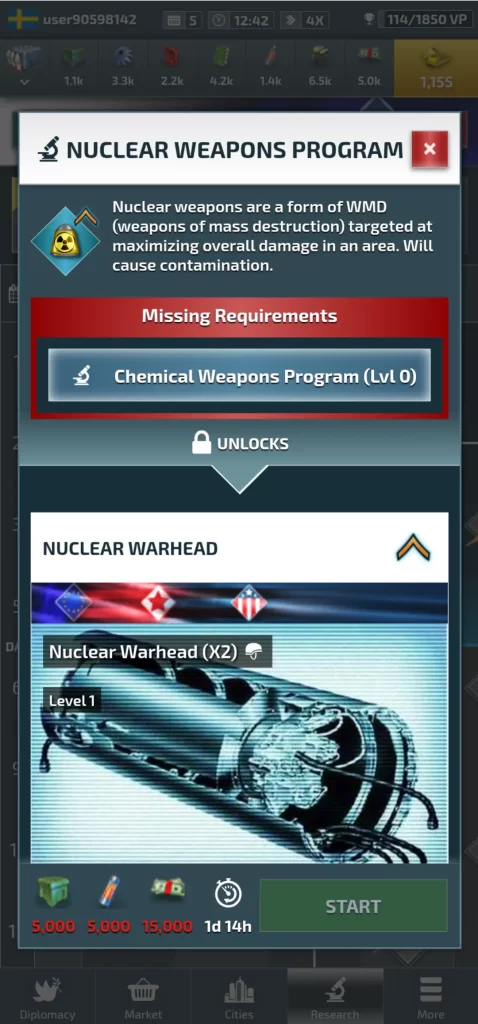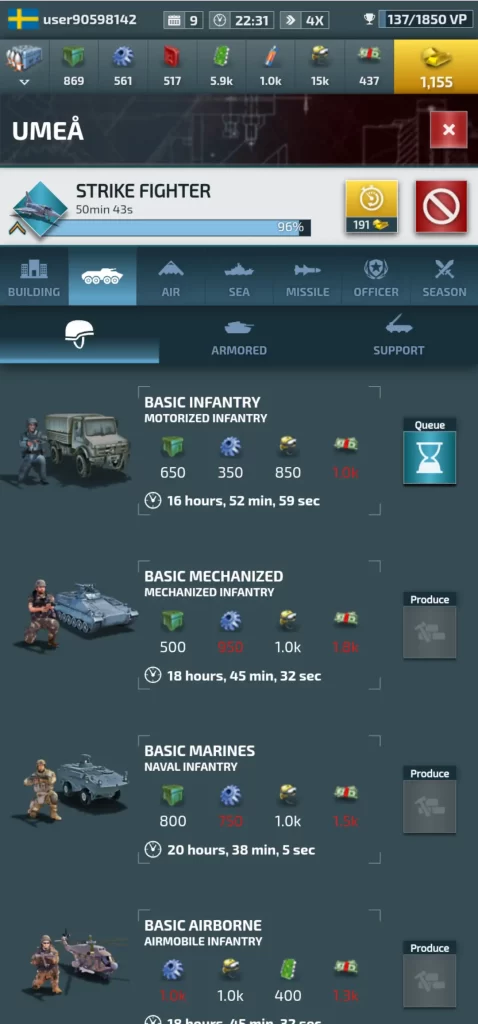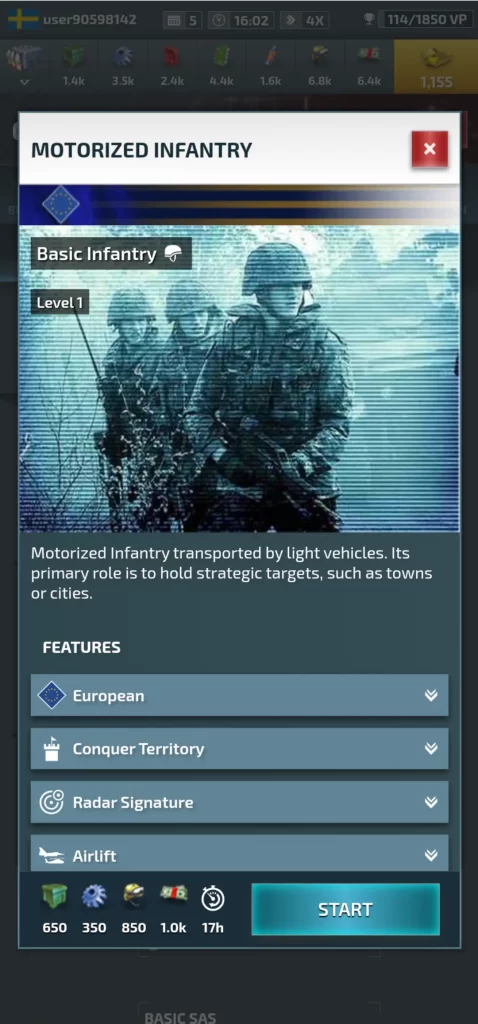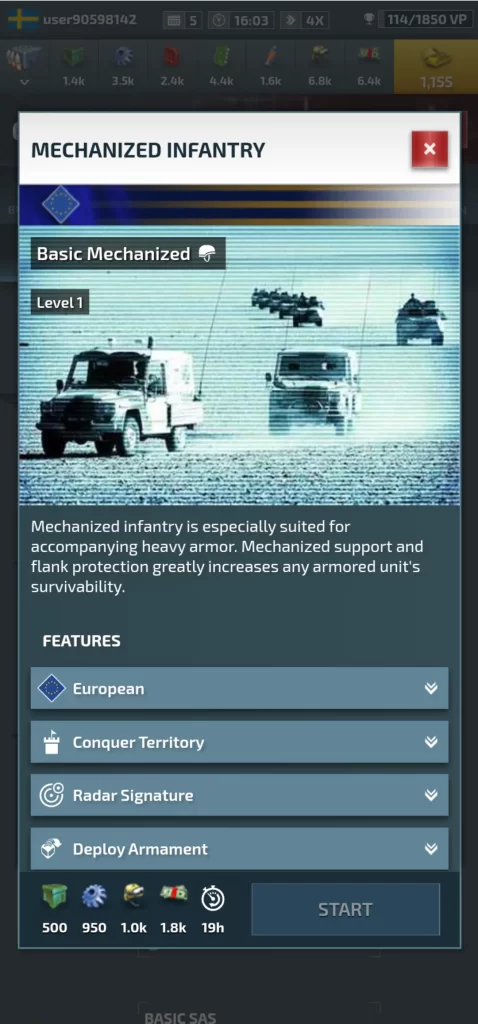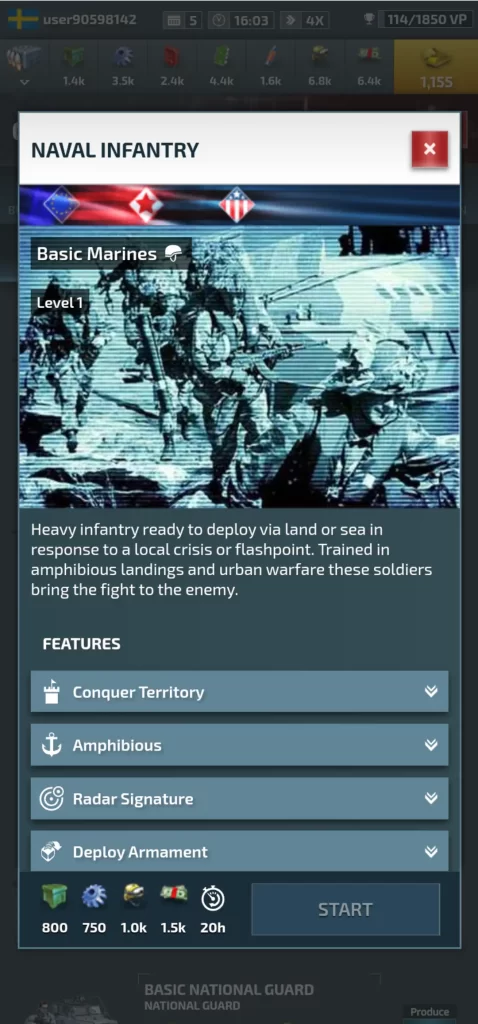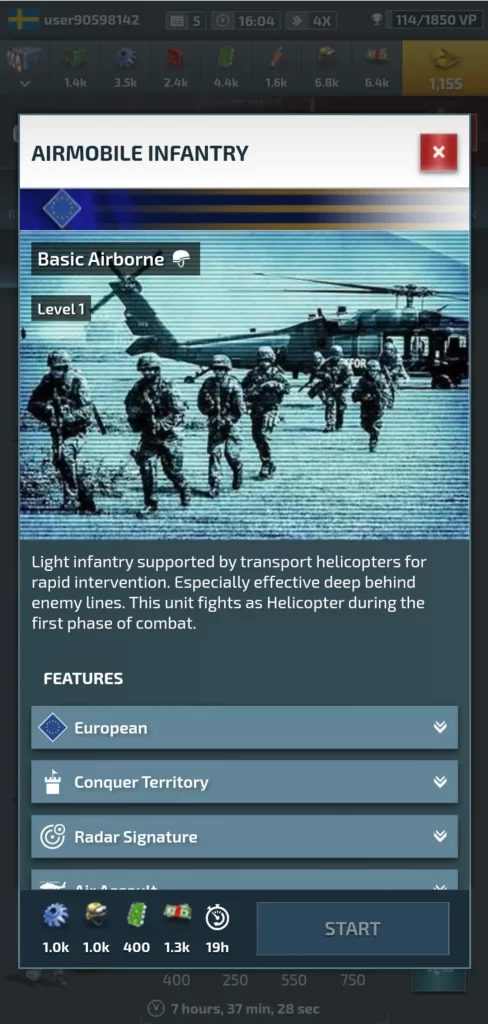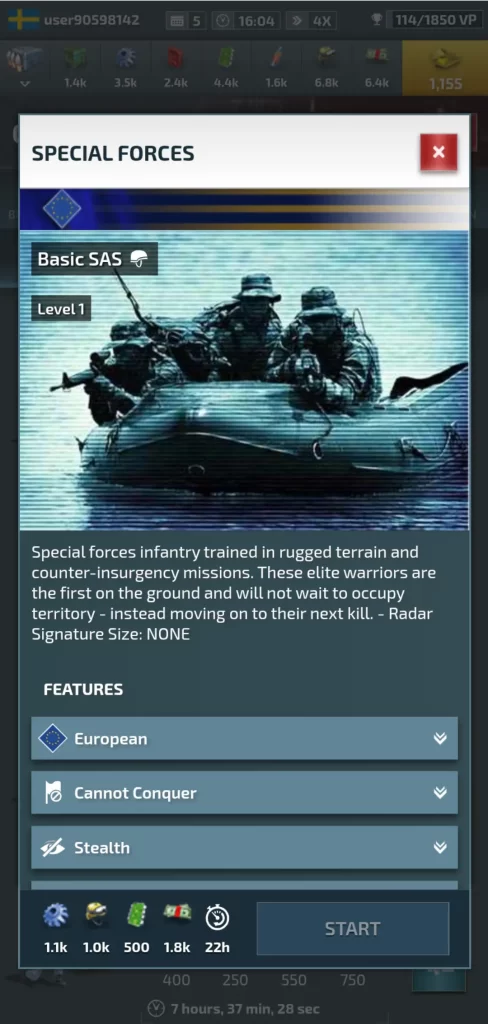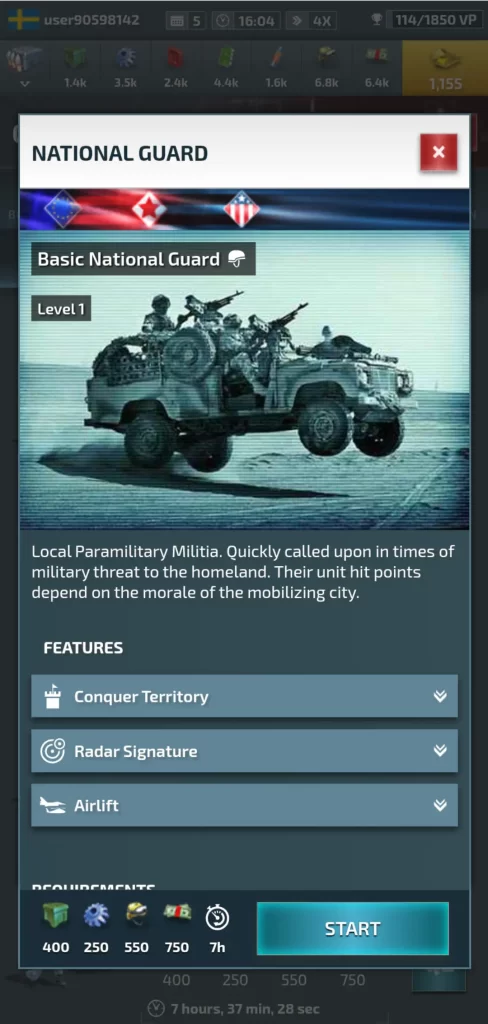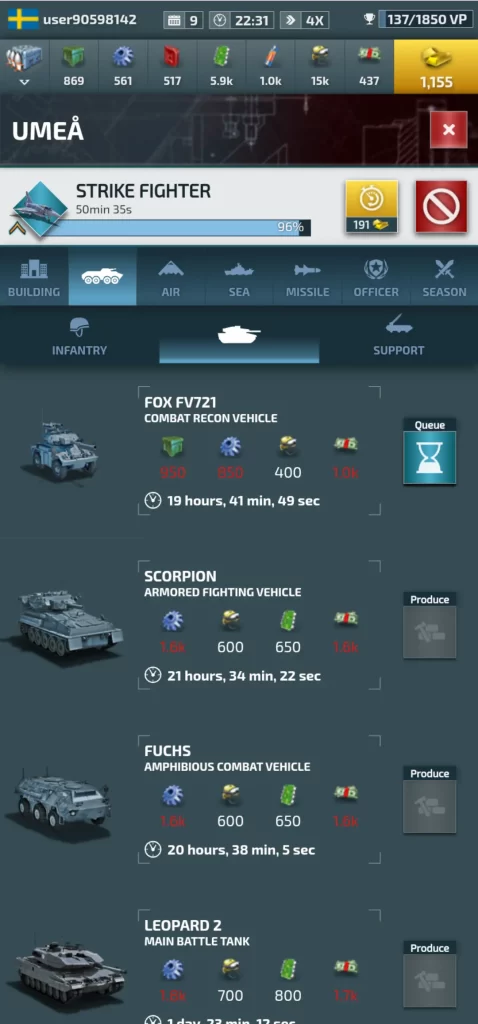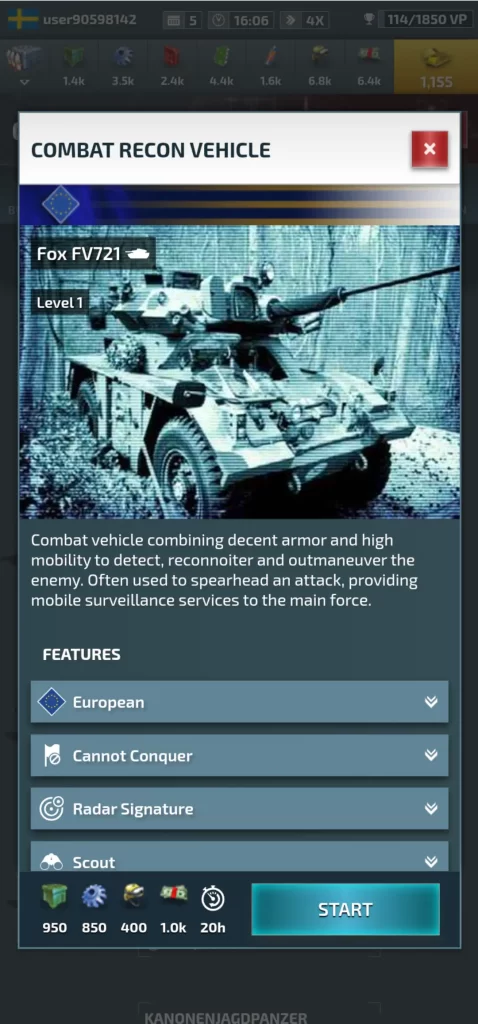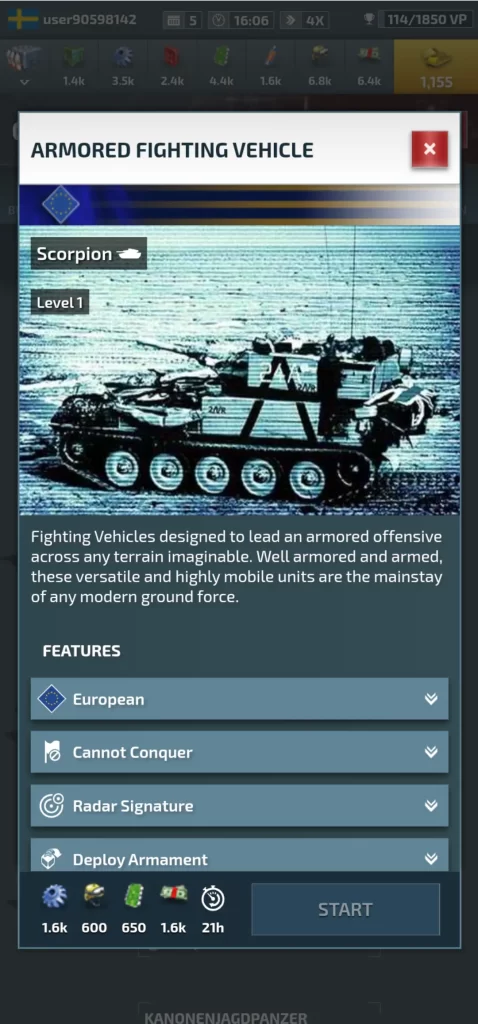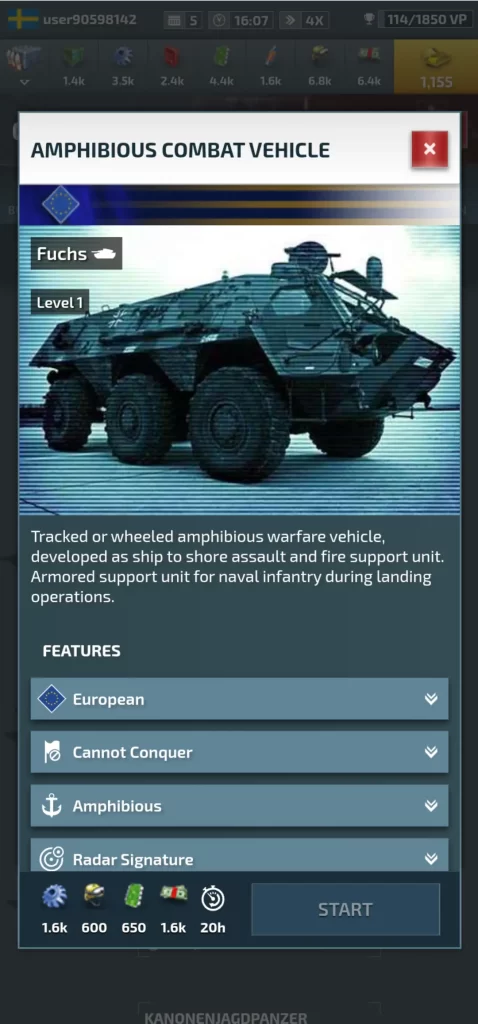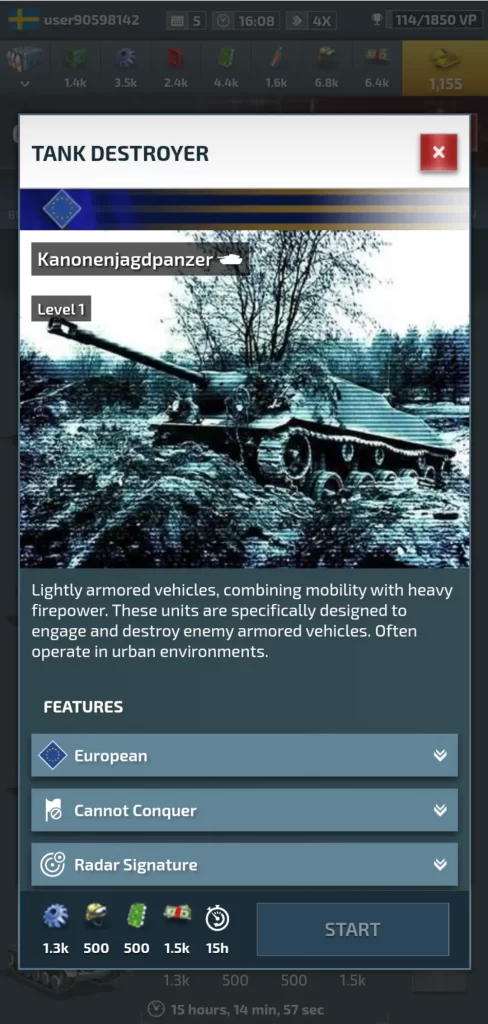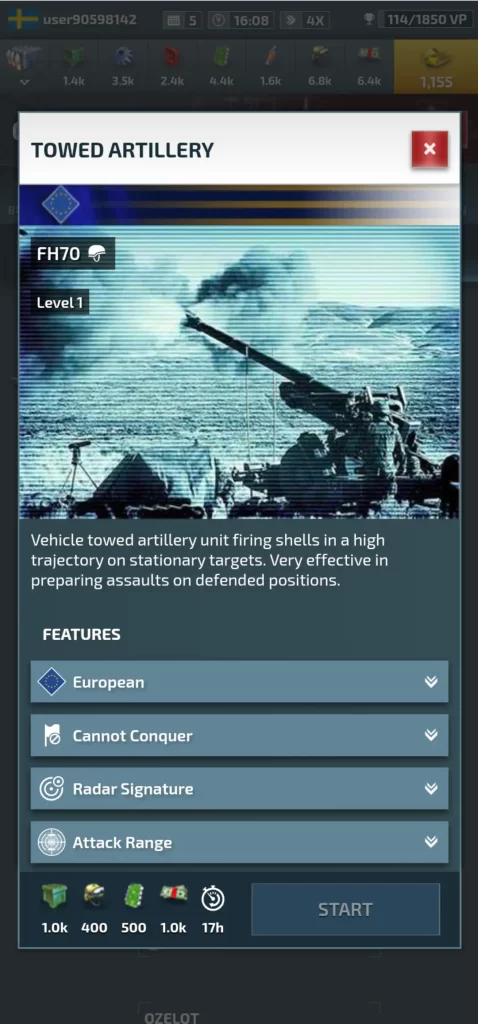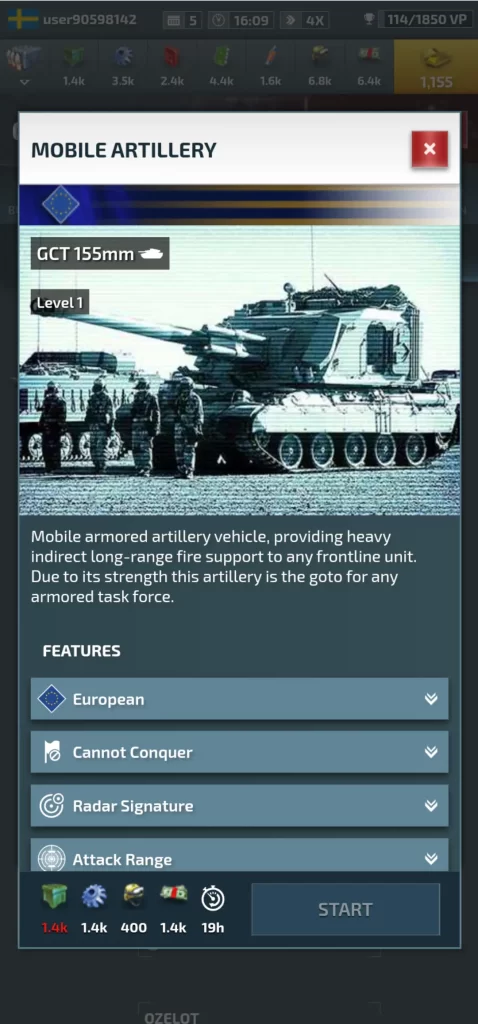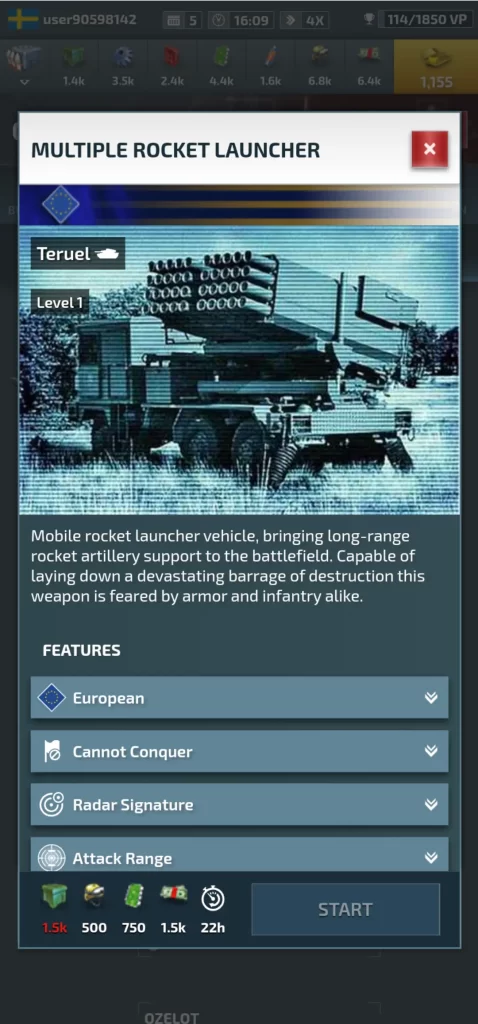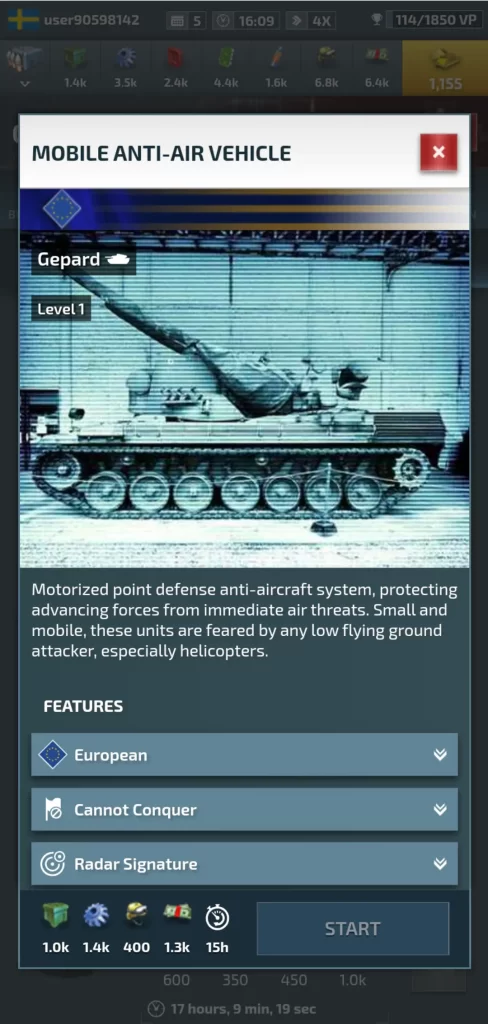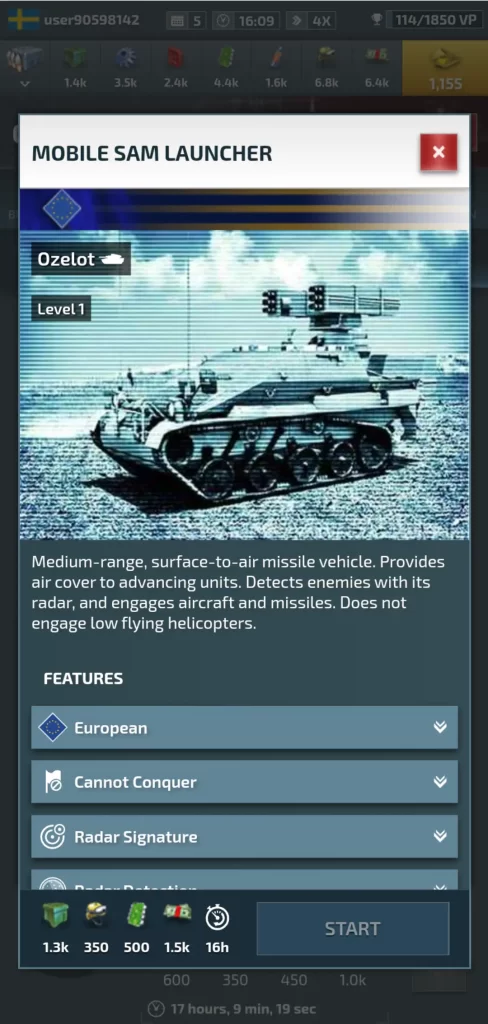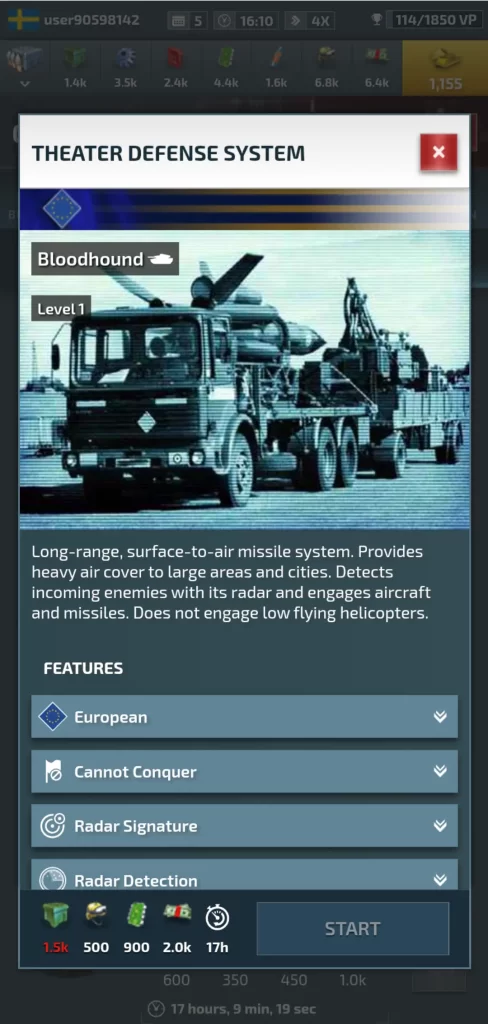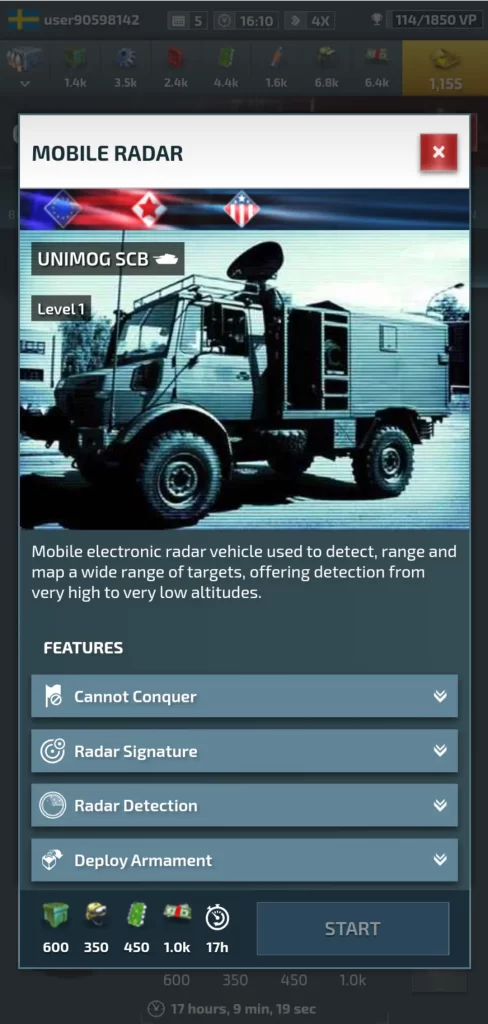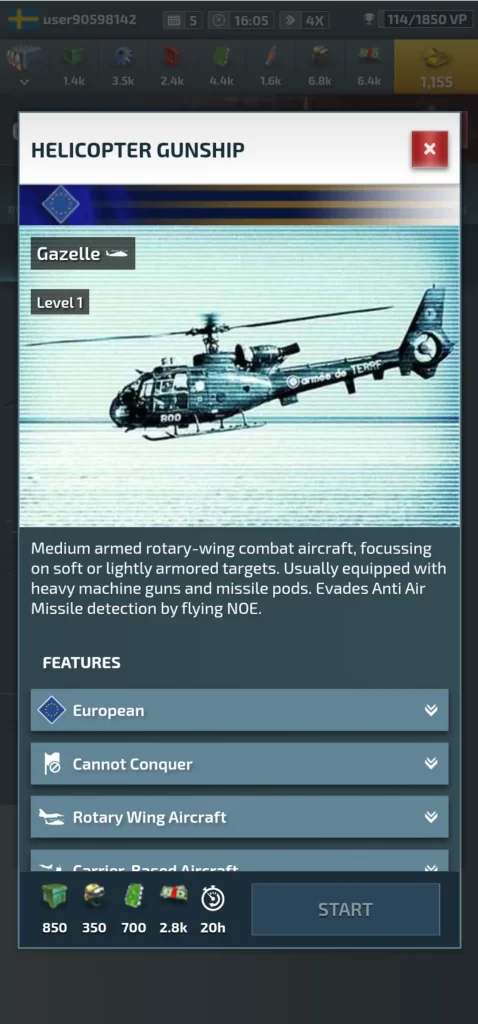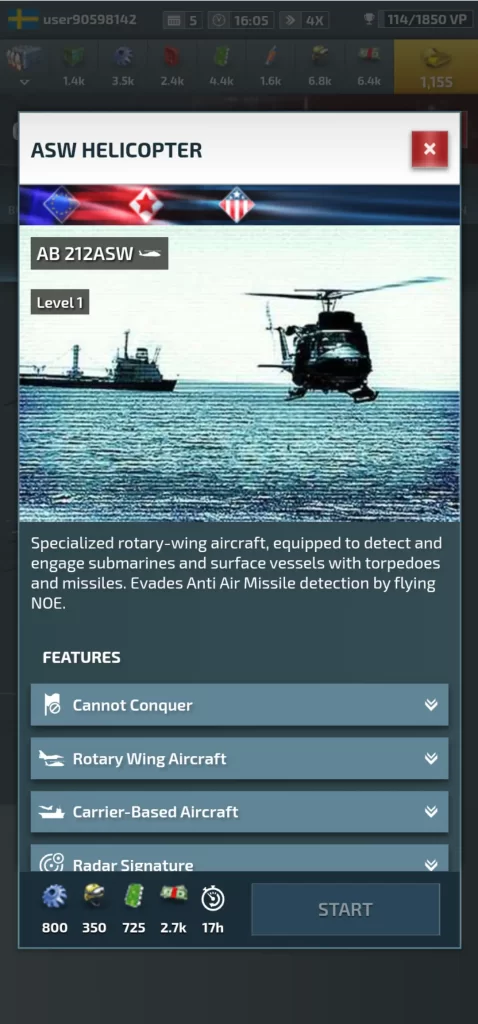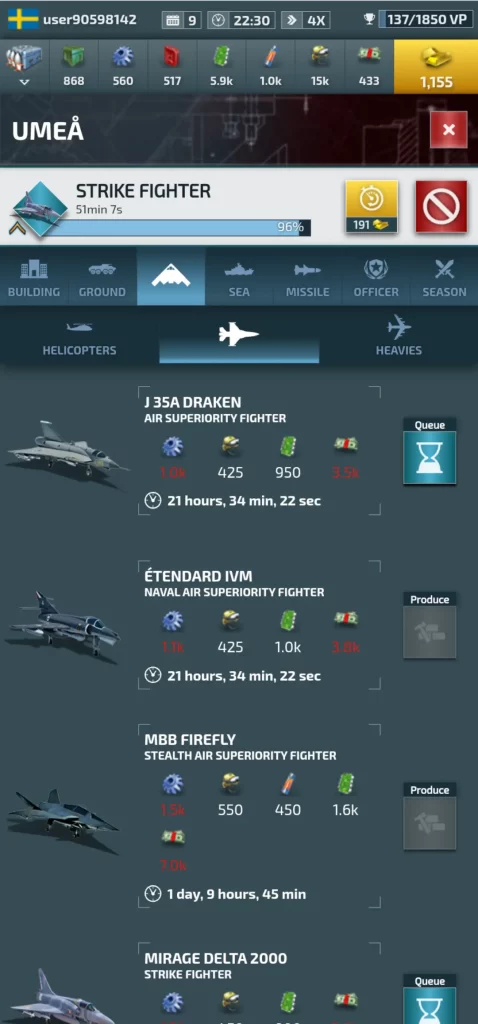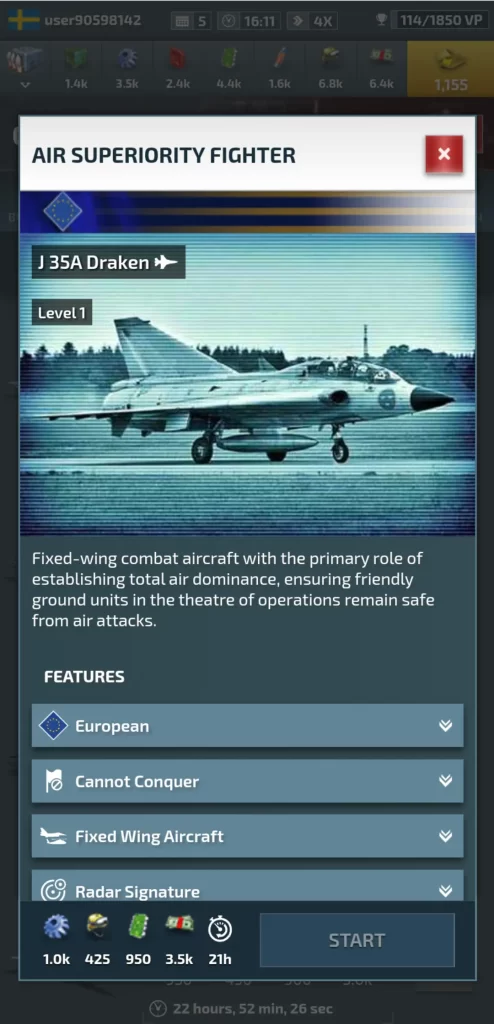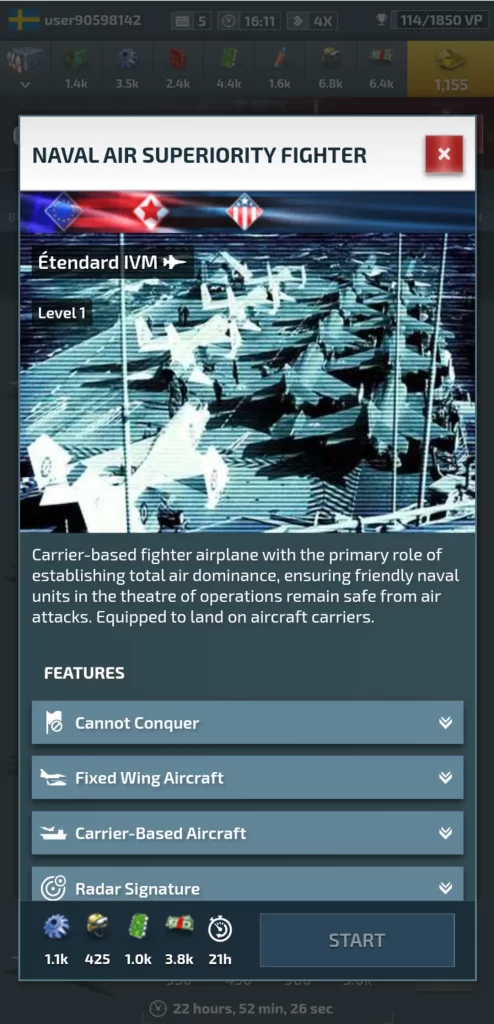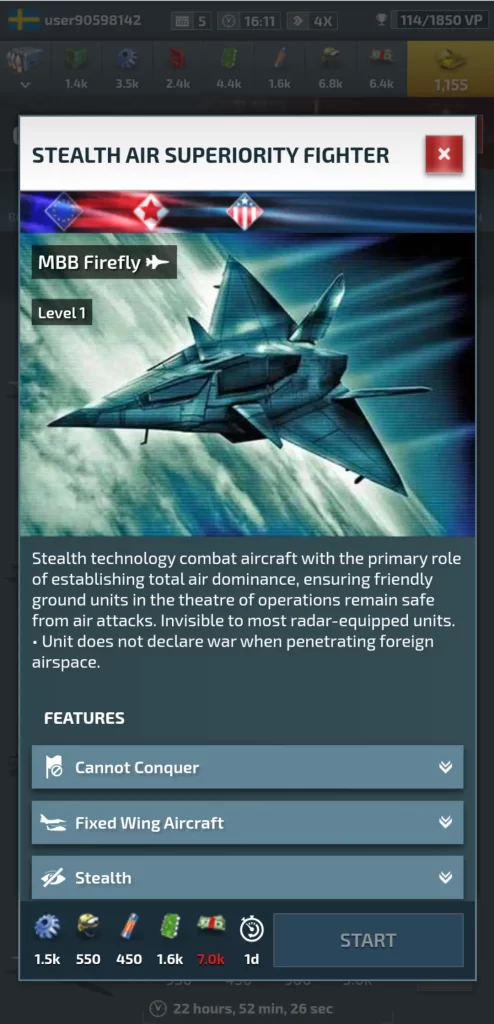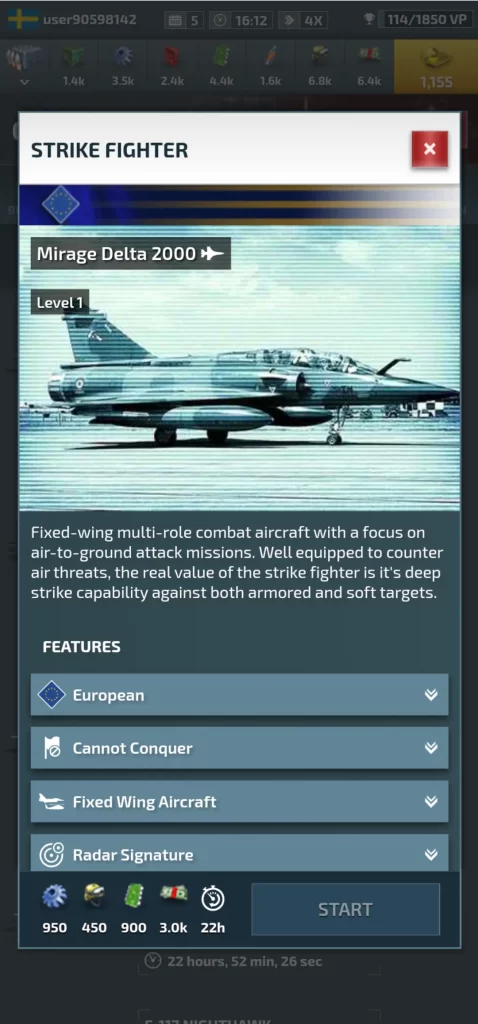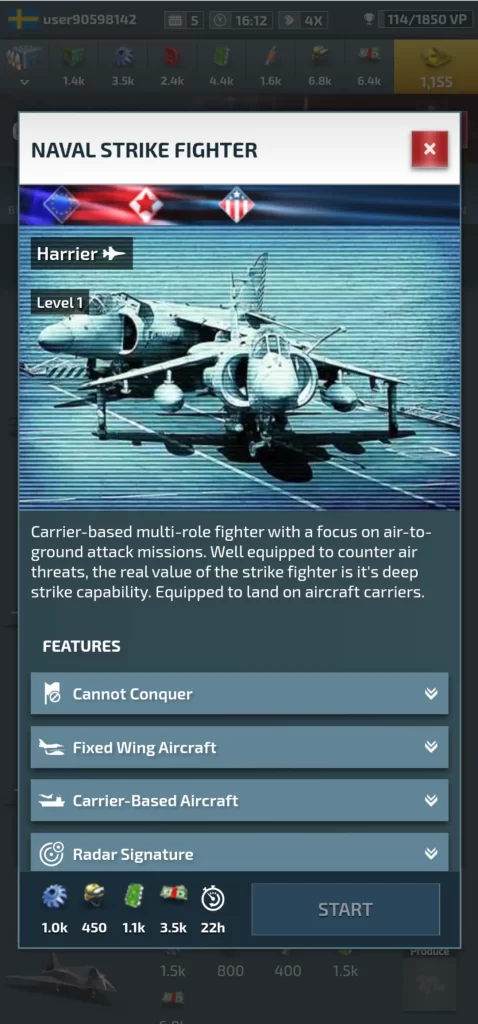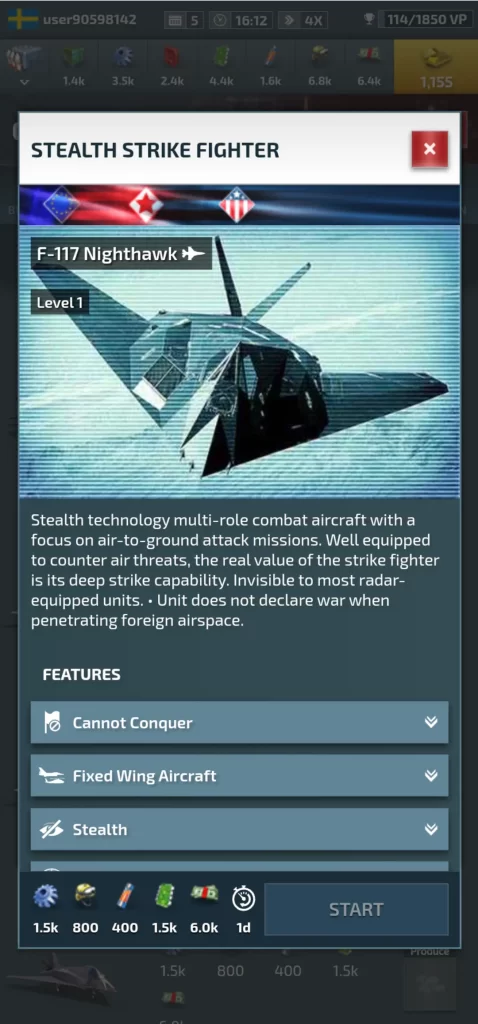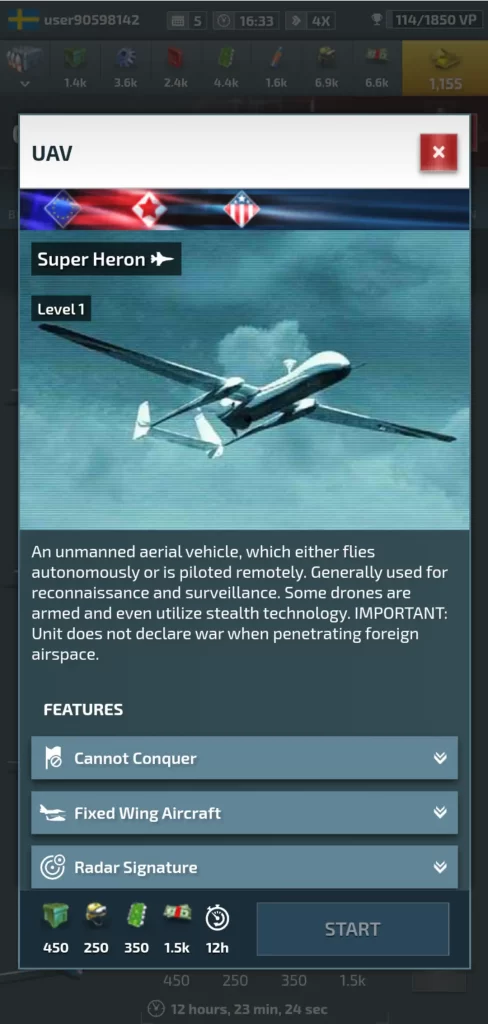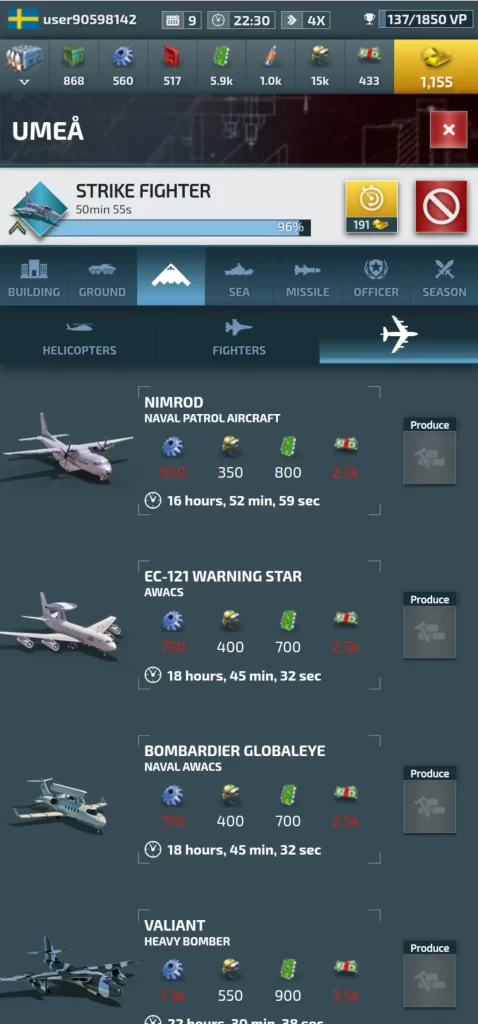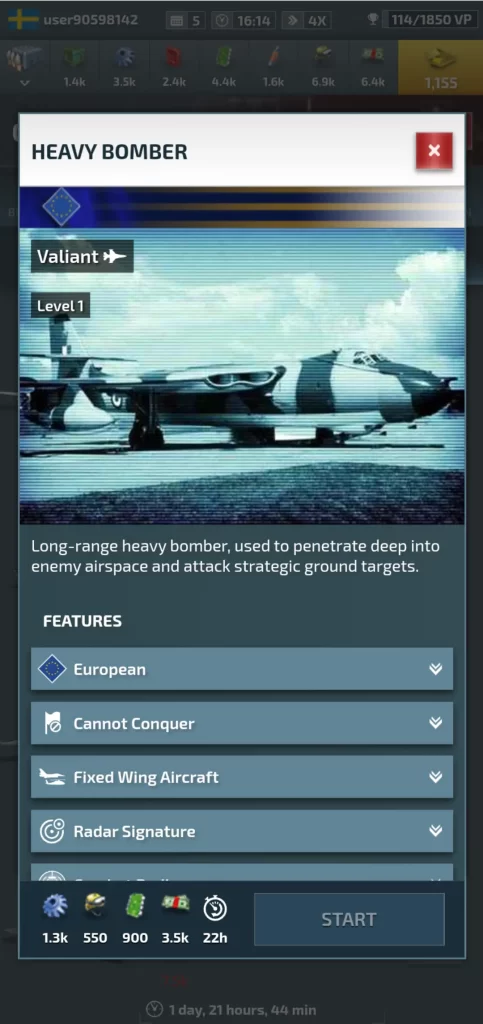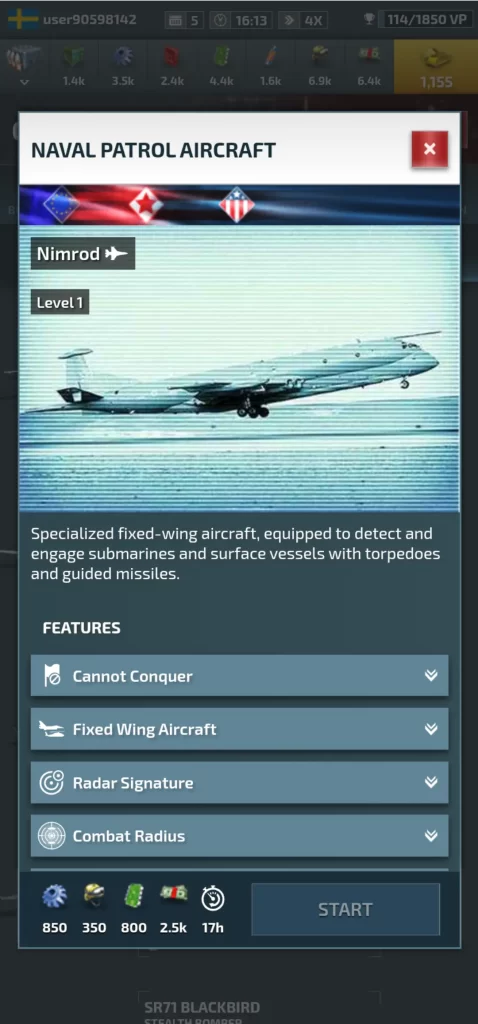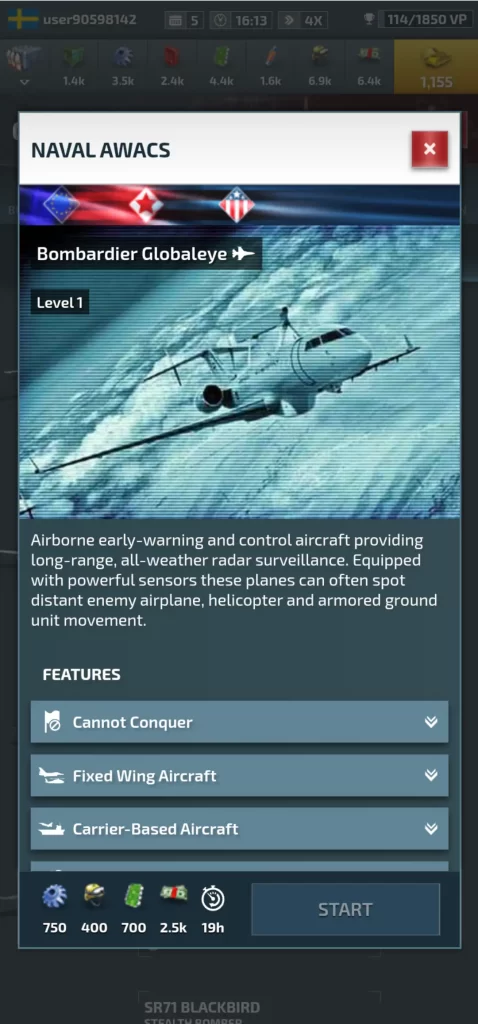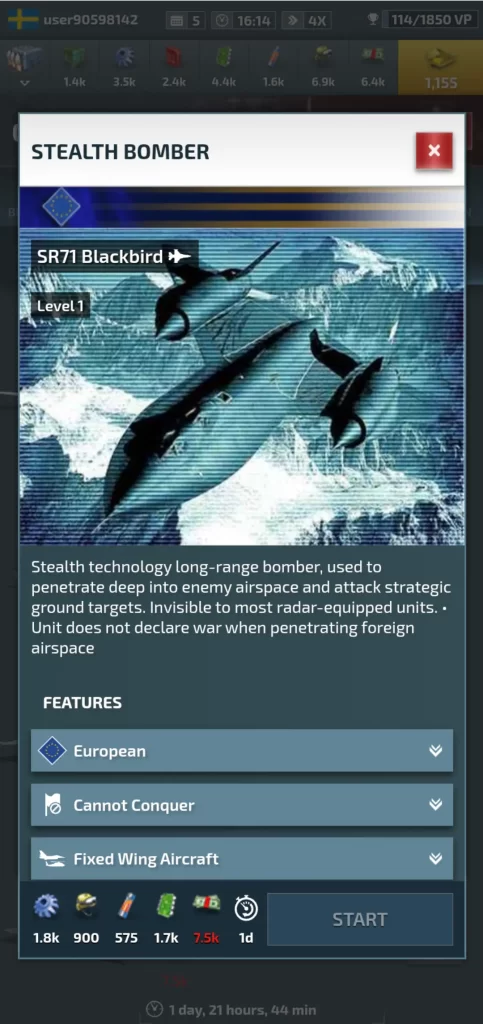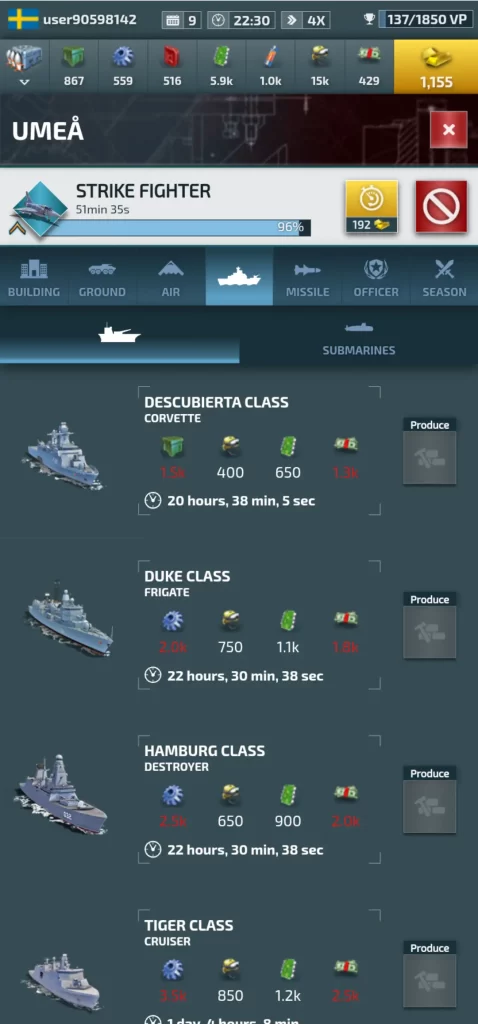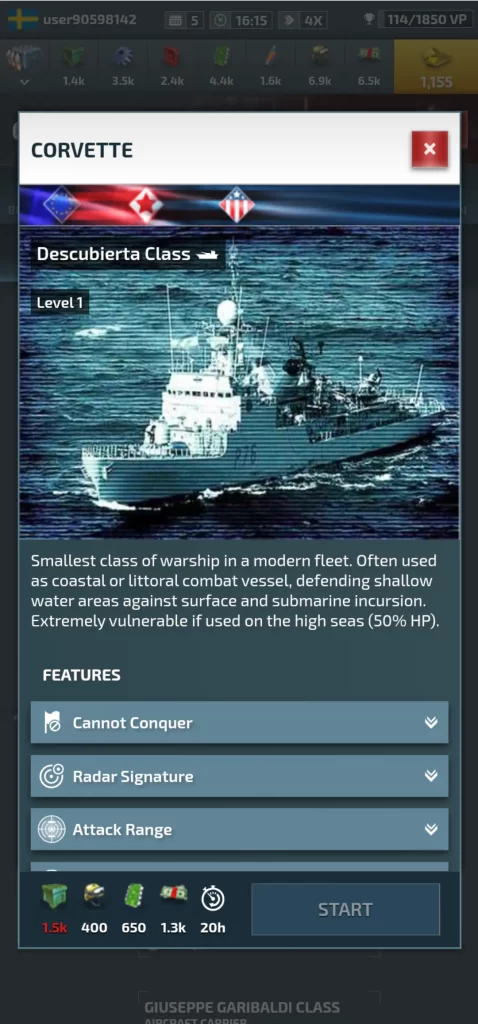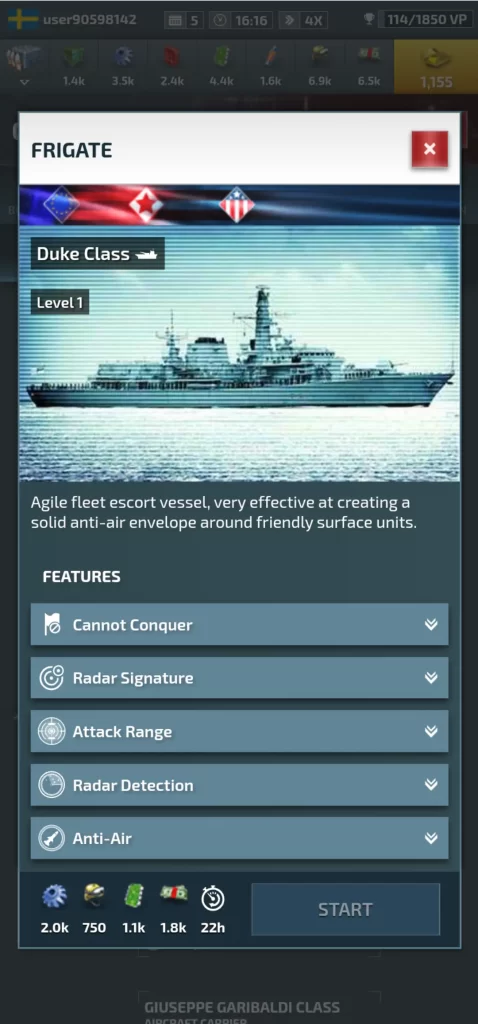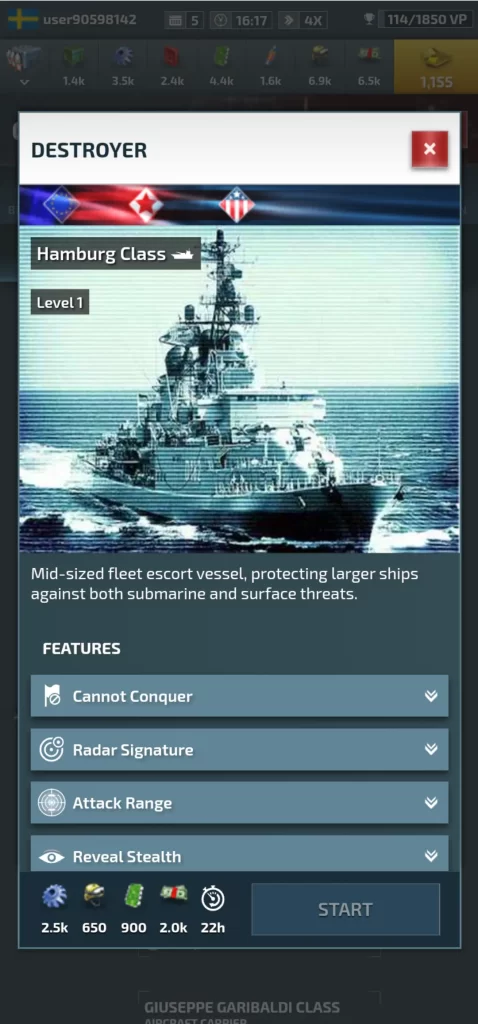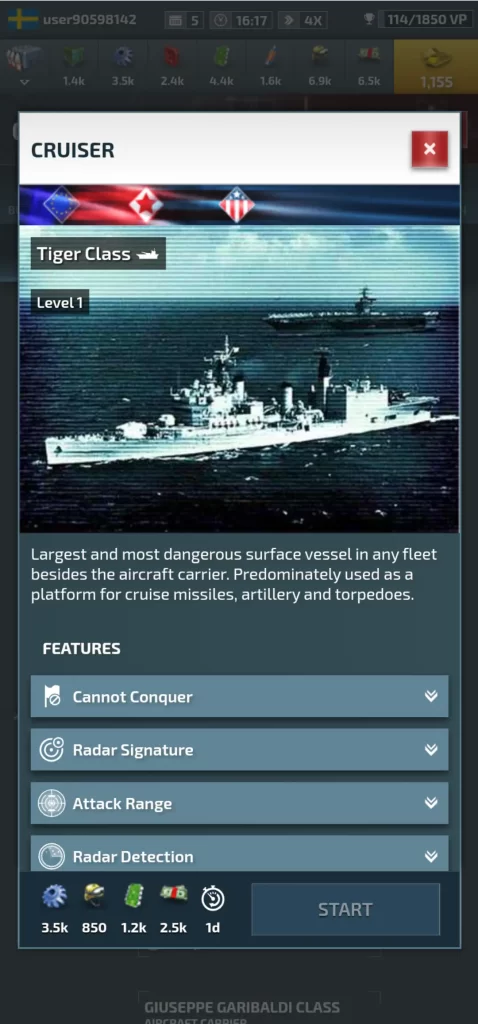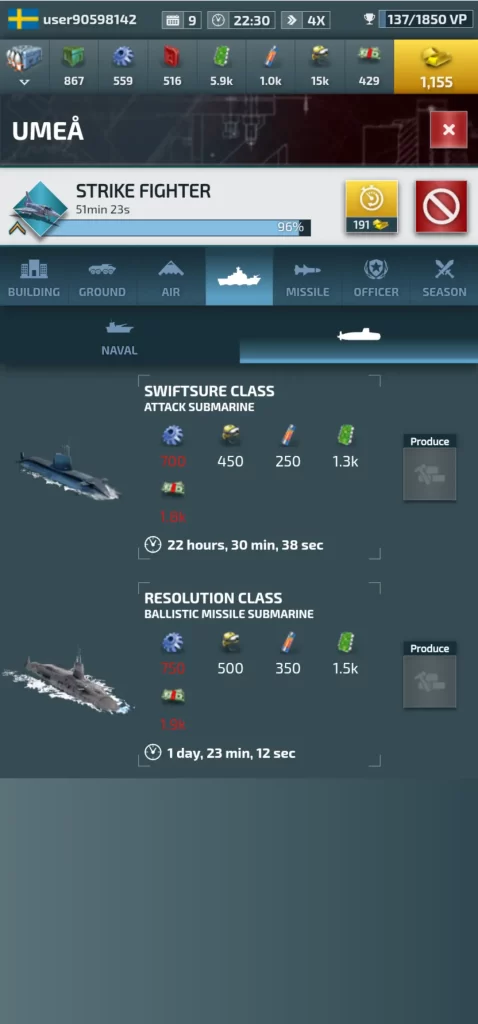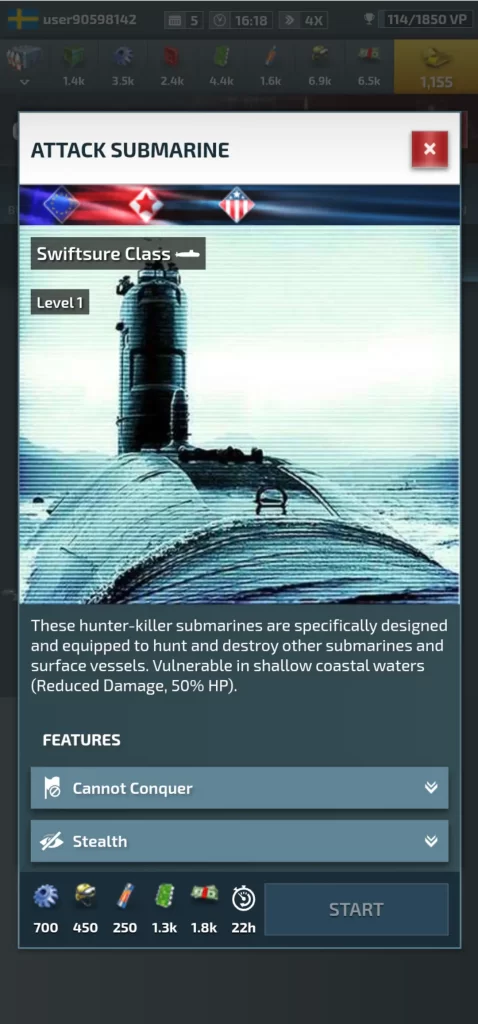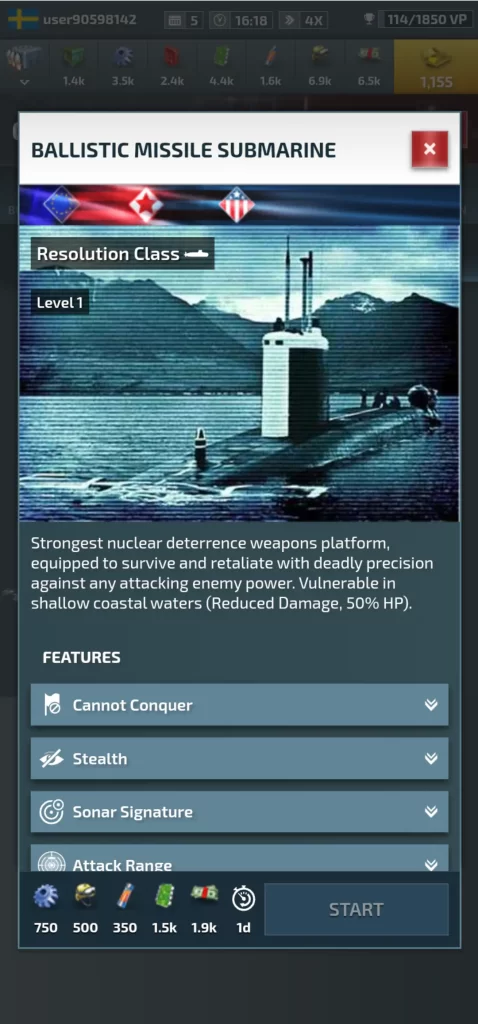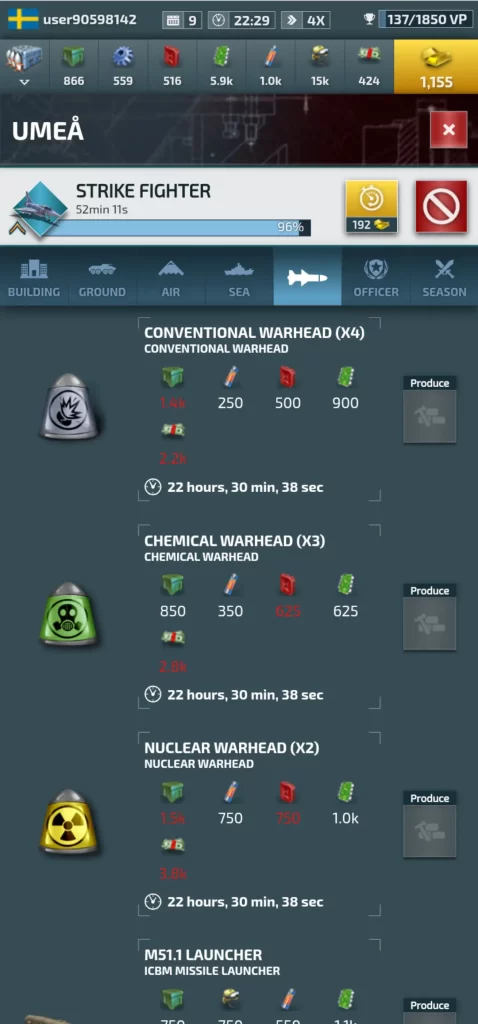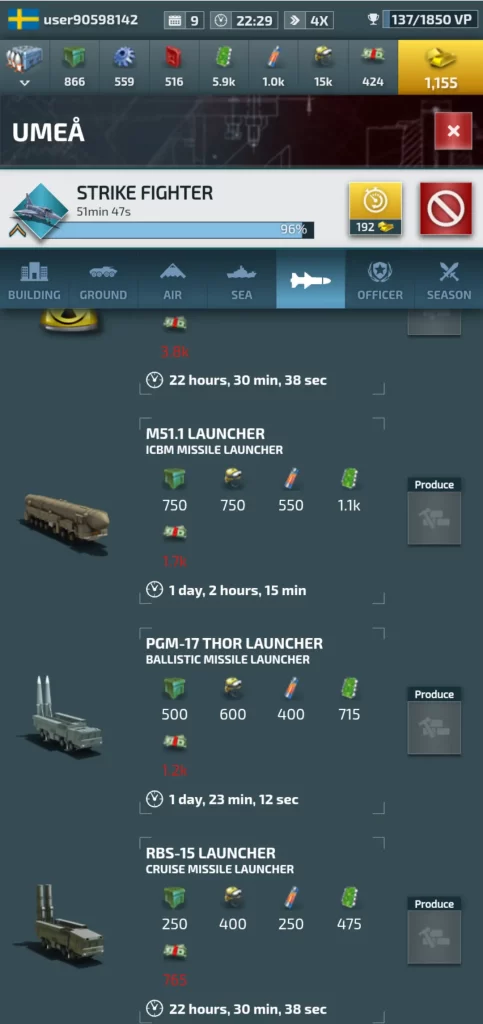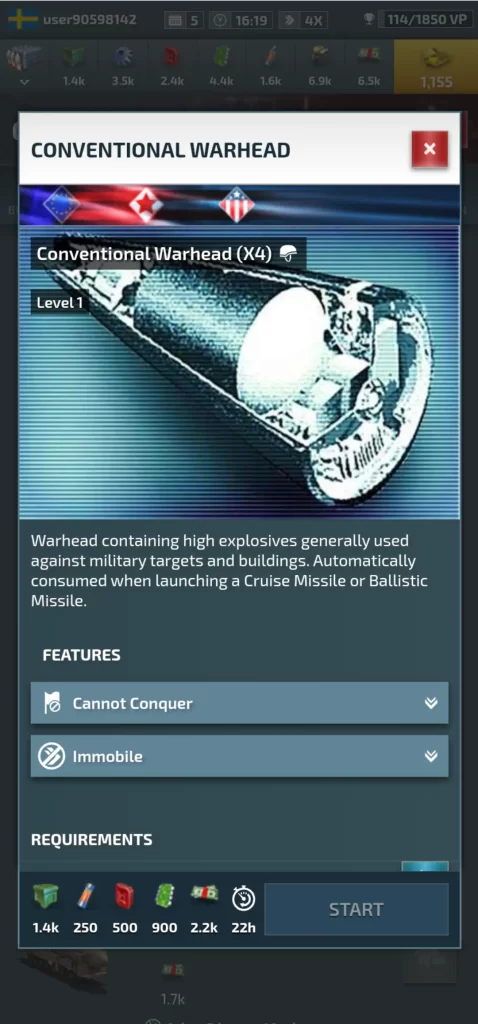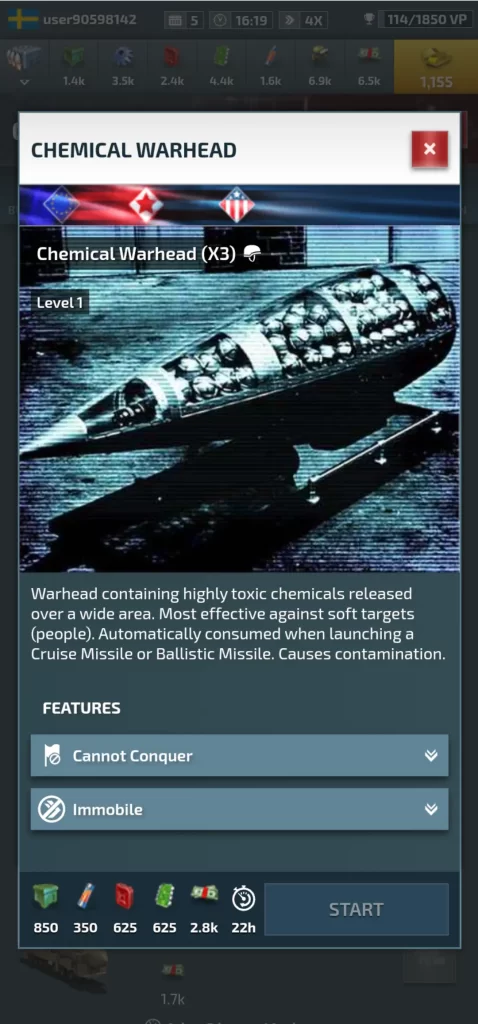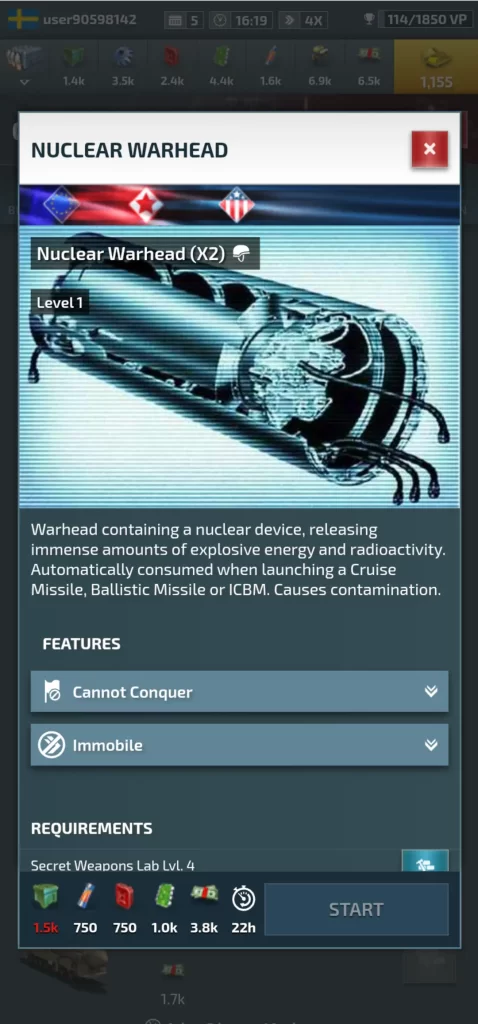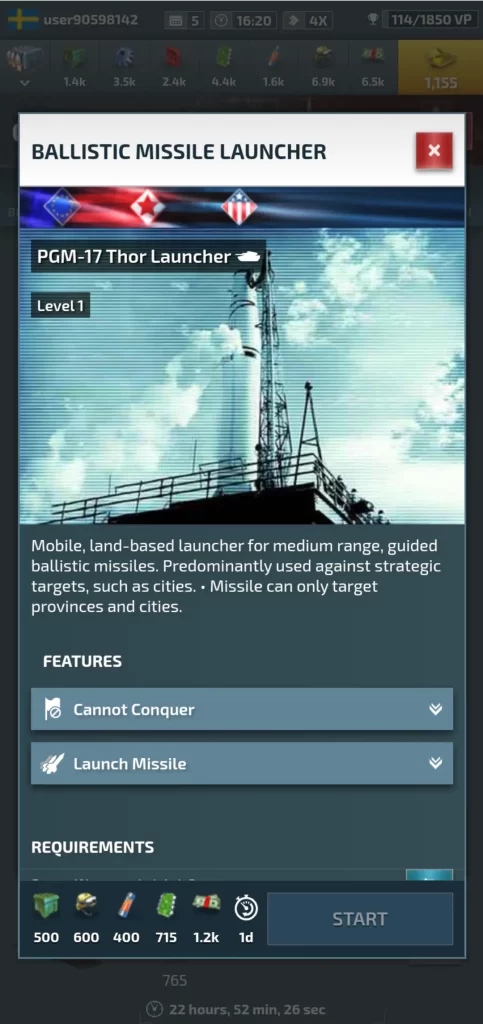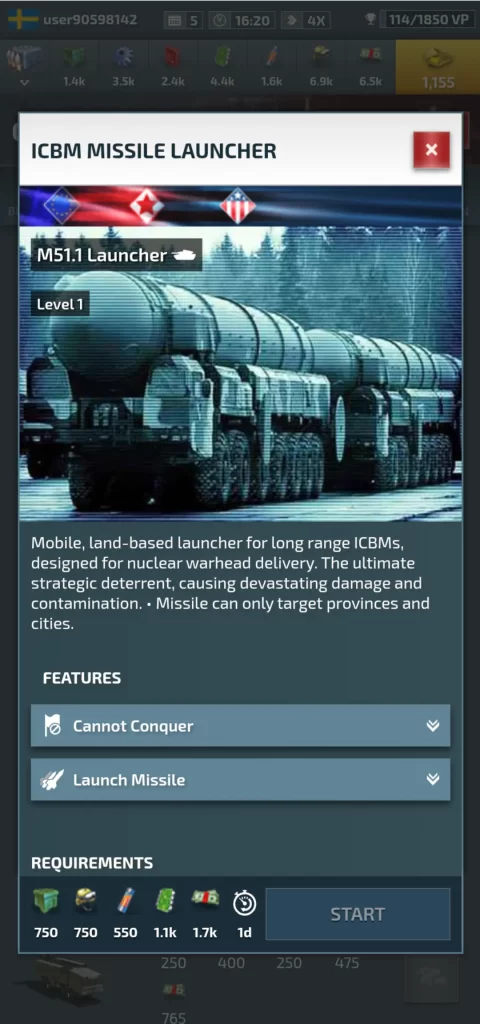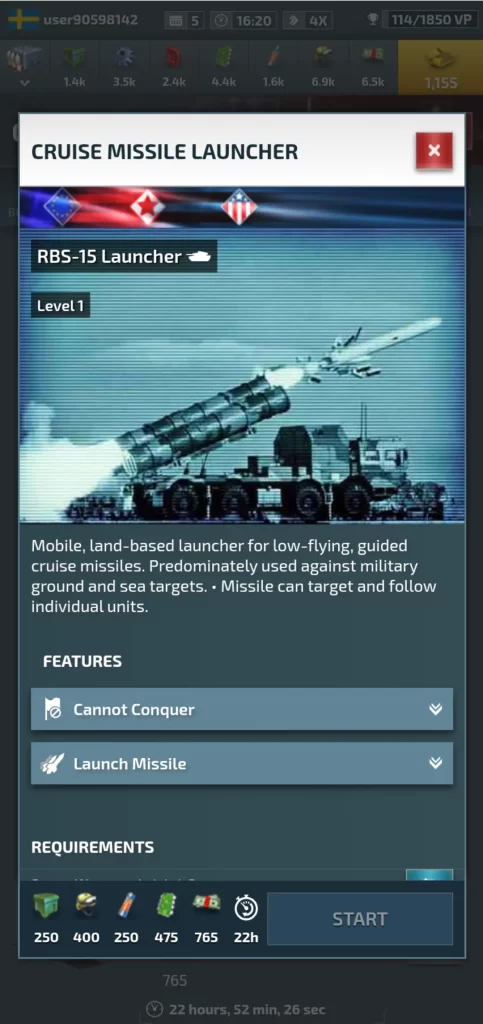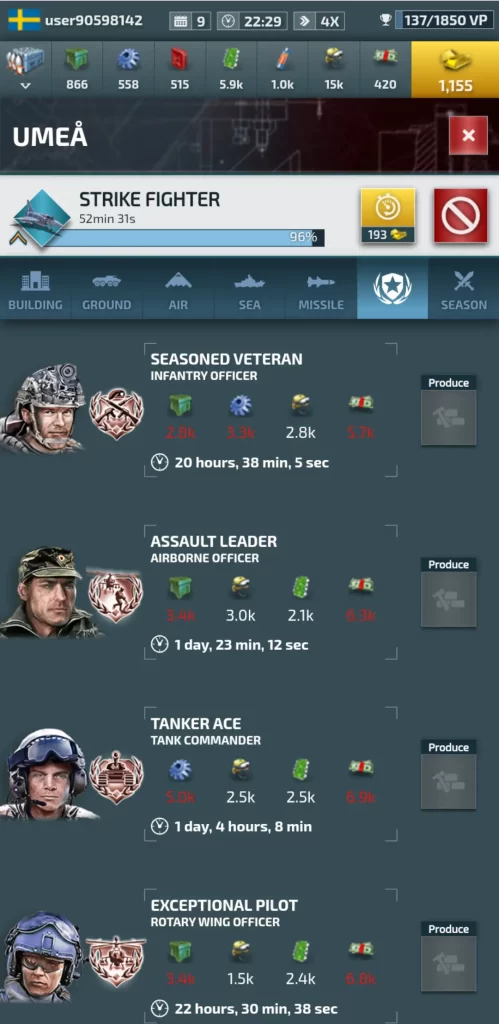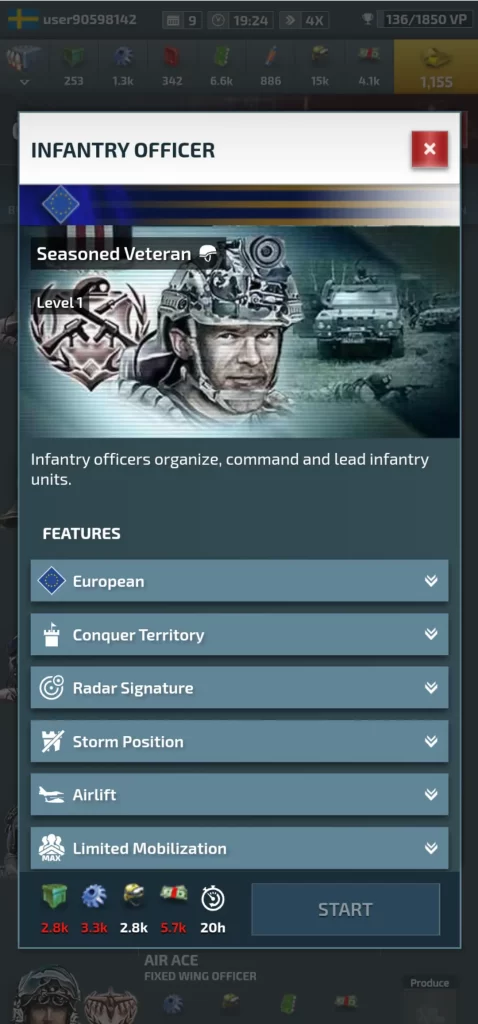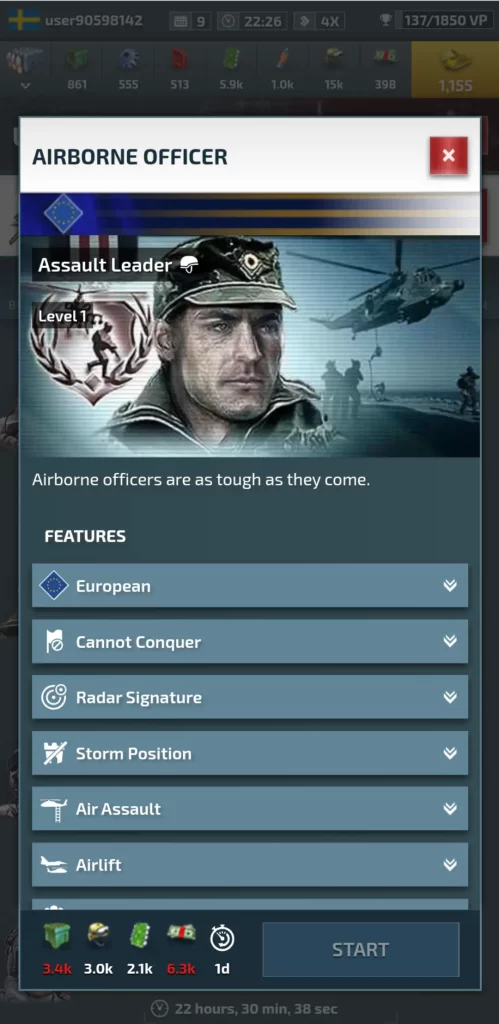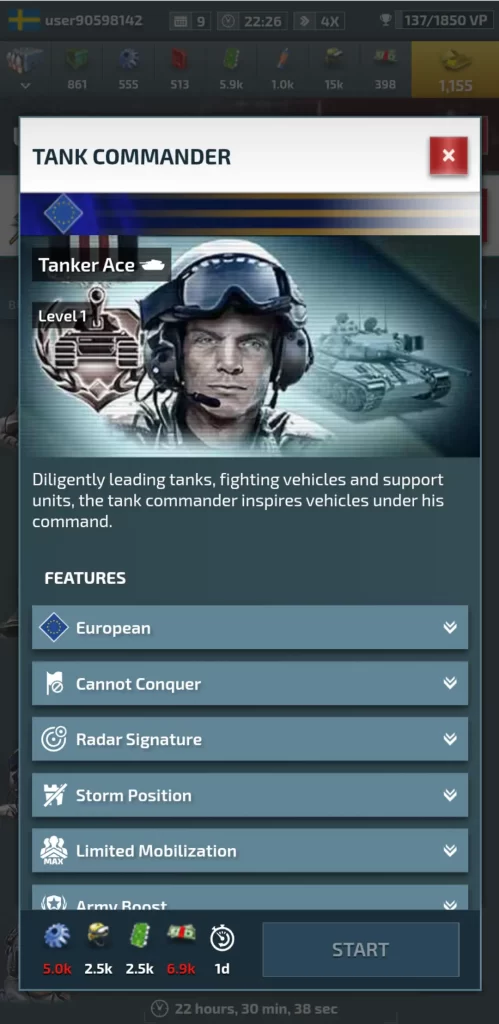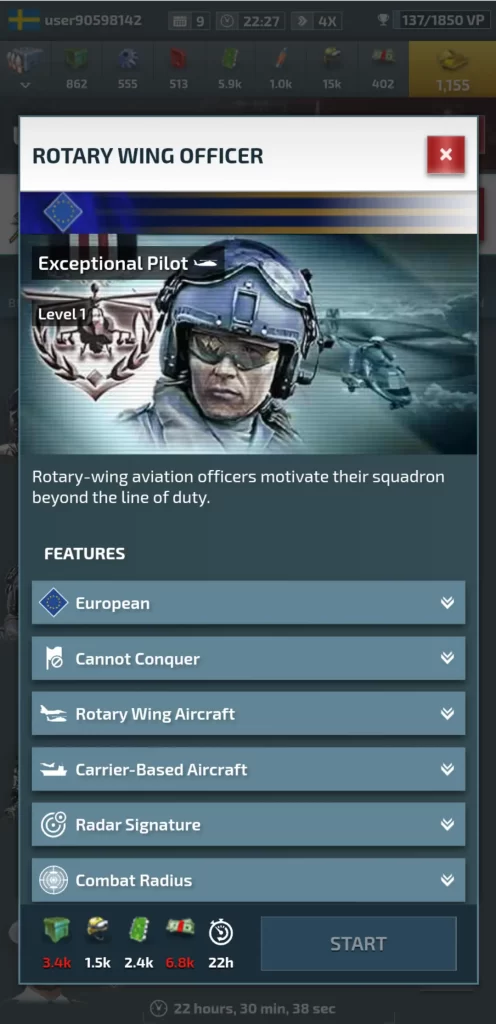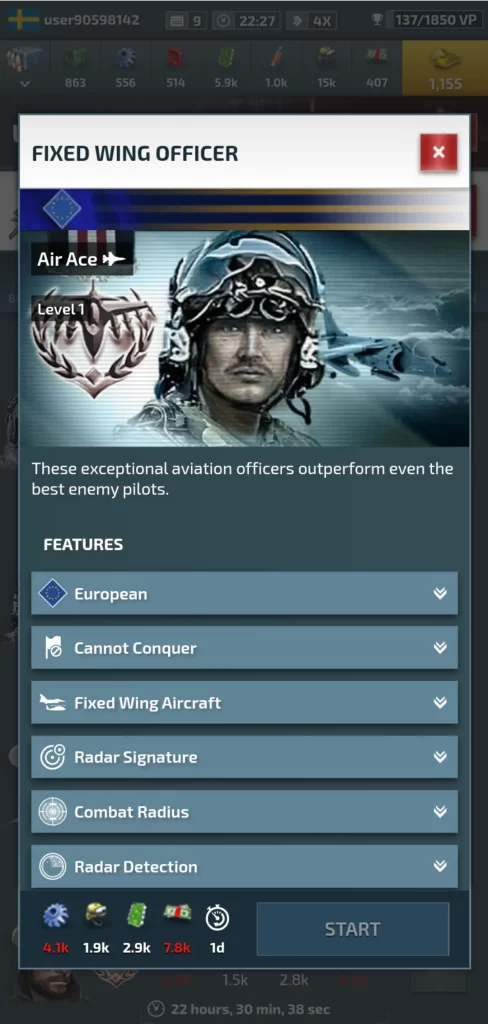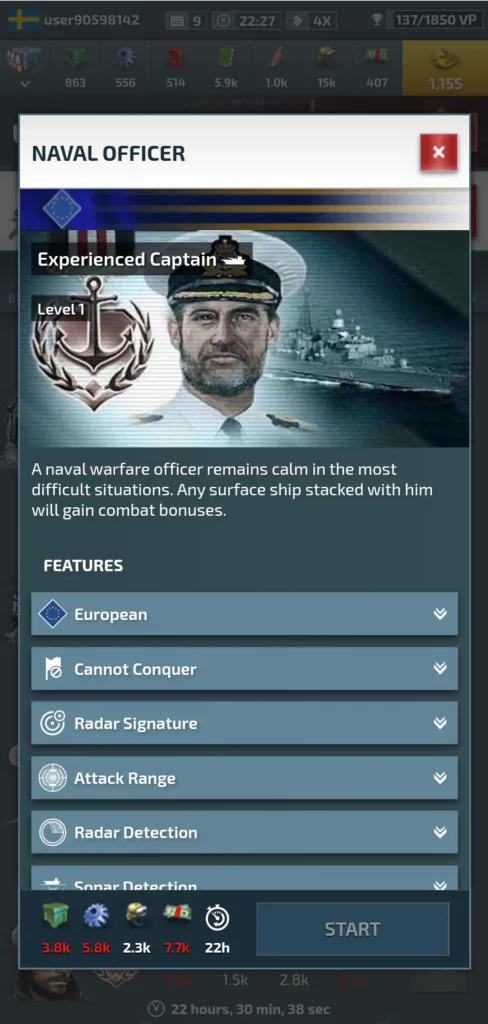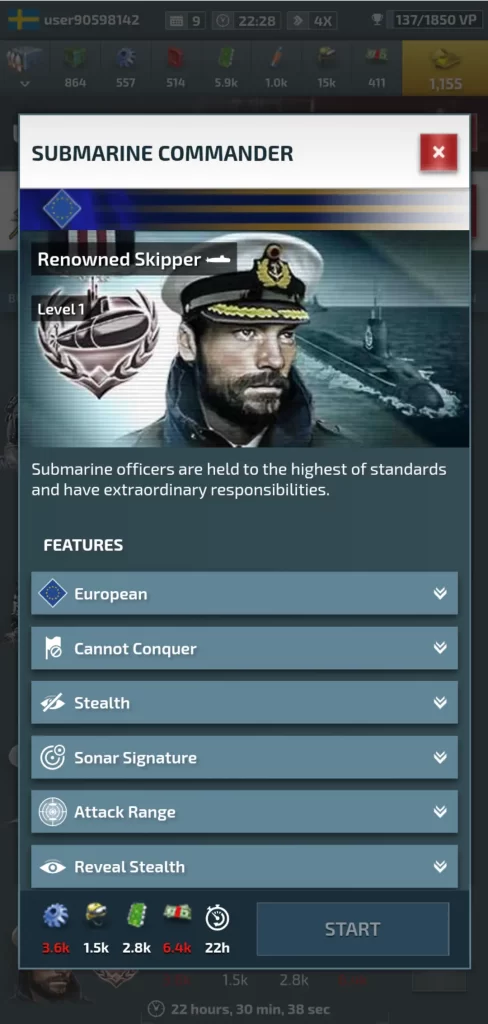The end is coming, but it doesn’t have to be YOUR end.
In a dark room deep within a bunker under Sweden, a huge table glows blue with a map of the world on top of it. Havana, Camaguey, and New Delhi are marked in an ominous bloody red. You and several others stand around the table in your crisp uniforms and discuss what might be the coming apocalypse.
To the world’s shock and horror, Algeria has fired multiple nuclear weapons at Cuba and India. But this was merely the grim punchline to a farce of politico-economic mishaps and violence for the past few decades, often involving countries that seemingly had nothing to do with the dreadful ICBM attacks. You yourself had been in charge of the so-called “peaceful” annexation of Norway, a bloodbath involving city firefights and civilians finding themselves in the way of air assaults.
What of the superpowers? How will the United States react to a pair of mushroom clouds caught on smartphones from Miami? Will China support the Algerians for attacking India or see them as a threat, a rogue upstart nuclear state with a trigger finger twitchy enough to make North Korea blush? One thing is for certain: The Third World War is coming, and while you yet live, Sweden will keep its borders even after everything else is reduced to glowing ash.
Welcome to our Conflict of Nations: World War 3 beginner’s guide! Made by Bytro, the same team behind Call of War: World War 2, Conflict of Nations is a similar but noticeably faster game than its predecessor with its lack of a Trade Embargo function and most lighter units being airlift-capable as long as you have enough Airbases between their destinations.
You control a country and its armies, send them to invade other countries and take their land, and the game is still slow enough for a player to order a set of moves and then do something else for the rest of the day unless they’re playing a 4X Speed map. No Trade Embargoes mean the AI can’t really do much about players invading other nations without provocation.
There is less emphasis on huge unstoppable 40-unit doomstacks and more on maneuver warfare, with armies larger than 10 units stacked suffering from a debuff which makes them less effective in combat. All in all, it’s a tense game of modern military strategy and slow, burning tension even in its fastest game modes. We hope this guide helps you through the coming Third World War.
DEPARTMENT OF DEFENSE
Defending one’s borders is one of the more difficult things to do since the game encourages high aggression, especially early in the game. There are a few things that help with defense, particularly when it comes to seeing enemies coming such as the heavy use of aircraft and radar. Defense suddenly becomes a priority too if the game goes on long enough for people to sling Scud Missiles at each other.
Air Patrols
One of the biggest threats in the game is air attack: Most units cannot retaliate against aircraft effectively, and while land-based anti-aircraft systems are great for homeland defense, they’re not exactly suited for quick response if the enemy bypasses them somehow or a shift to an offensive plan.
That’s where Air Superiority and Strike Fighters come in: These two planes are your bread and butter for both scouting and air battle, with ASFs carrying radar to detect enemies and Strike Fighters able to catch sleepy players off guard with their speed. You can use ASFs to protect against Strike Fighters, and Strike Fighters to force your opponent to redeploy AA defenses in a hurry or even to bait out enemy ASFs.
You also have the option to use Gunships and Attack Helicopters in lieu of Strike Fighters if you have a surplus of Supplies and a shortage of Components, or if your opponent deployed a ton of SAMs before you even came to their country since ROTARY WING units fly too low to hit with ground-based long-range missile defenses. UAVs are useful for offensive scouting as they don’t automatically cause a war declaration when violating foreign airspace, and have the Scout ability which immediately tells you the full unit composition of any armies it spots.
Radar Use
There are 2 kinds of Radar Signatures: LOW and HIGH. While units with a HIGH Radar Signature will be detected by any radar that can detect that unit type, units with a LOW Radar Signature can typically sneak past any Radar that can only detect HIGH Radar signatures.
Meanwhile, if a Radar can detect LOW signatures, it can also detect HIGH signatures. No radar can detect stealth, and a unit needs the separate Detect Stealth trait to see Stealth Units that are not engaged in combat. Radars are very useful for defense so you can see incoming attacks from a distance.
National Guard Callup
National Guards are cheap, cheerful, can be researched on the first day in 30 minutes, have HP dependent on the training city’s Morale, and can be used to bulk up a defense to surprise any earlygame rushers, especially if you’re very active in a 4x Speed game.
With an 8-10 hour recruitment time compared to Motorized Infantry’s 20+ hours, you can do a callup for your whole country, set your phone alarm 8 hours later (or 2 hours if you’re playing at 4x Speed) and then call up more National Guards or call it a day and get some Motorized Infantry if you’re about to go offline. That being said, they deal more damage on the defense than on the attack, so leave them at home or simply use them as territory cappers while giving them real firepower with the use of vehicle units.
Anti-Missile Defense
So your neighbor has a bunch of ICBMs and they’re making not-so-subtle demands on you. Missiles in general are countered by the various anti-aircraft ground defenses in the game, especially the Theater Defense System. Getting all that anti-air positioned all over your important army stacks and cities will make it much harder for missiles to make it through, forcing your opponent to close in with their armies or use more basic artillery units such as Towed Arty, Mobile Arty, and Multiple Rocket Launchers.
That being said, this is mostly something to worry about if another player starts swiping their credit card to rush nukes, as missile technology is so expensive to research that even with the way it unlocks fairly early, you’re not likely to get them early into the game for free. At least, not without leaving yourself vulnerable by saving money and scrimping on your actual army for a while. Otherwise, you’ll probably want these AA systems a bit later into the game.
Transport Locking
A cheap earlygame way to annoy naval invaders trying to rush you is Transport Locking. This involves using your land units in Transports to “attack” enemy Transports, delaying them from landing since neither side can actually do any real damage.
This is mostly useful if you find some fool trying to land Transports unsupported on your shorelines and port cities, and you want the enemy to sit tight while your early Towed Artillery, Gunship Helicopters, or Air Superiority Fighters send them to the drink. That being said, this immediately becomes a lot less viable the second the enemy sends an actual warship!
SHOCK AND AWE
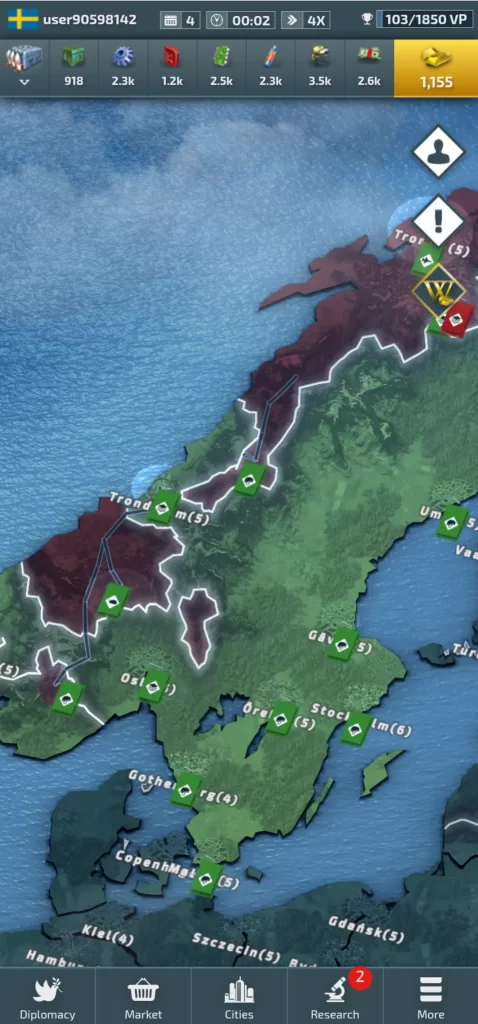
This game is about World War 3, so don’t be a peace-loving hippie. This is an era of bellicose aggression, diplomacy falling apart, and apocalyptic hatred covering the earth! The game very much encourages you to pick fights, albeit one at a time. So attacking is exactly what you’ll be doing, and you’ll need a plan.
Armies As The Objective Demands
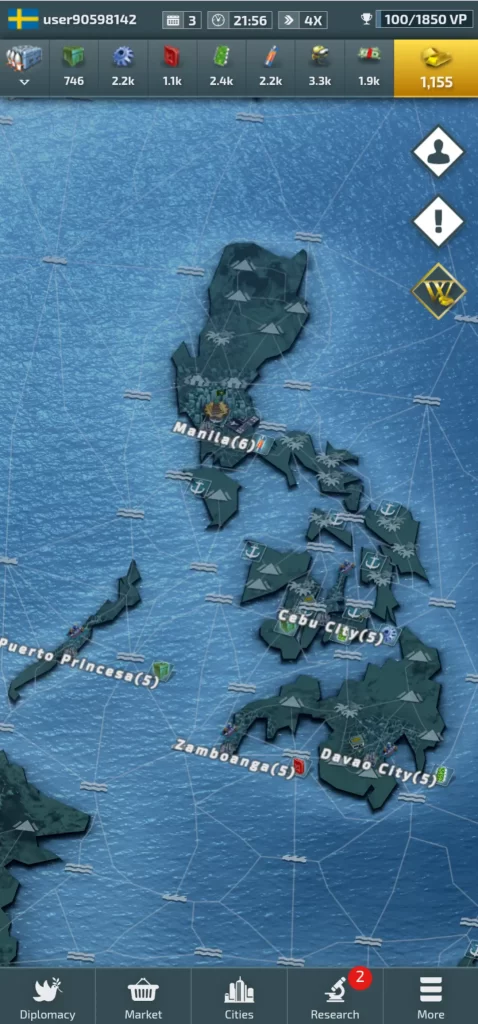
What army you make depends on where you start out and where your opponent is. If you’re an island nation like the Philippines, Taiwan, or Japan, a strong navy and air force might be a good idea even if it means sacrificing some of your land army’s budget.
On the other hand, a landlocked country like Chad would prefer a strong ground and air force at the cost of its navy, since you can’t exactly sail an aircraft carrier across Libya or Cameroon, but a tank division will roll over them just fine. Spend your funds accordingly!
Bypassing Radar
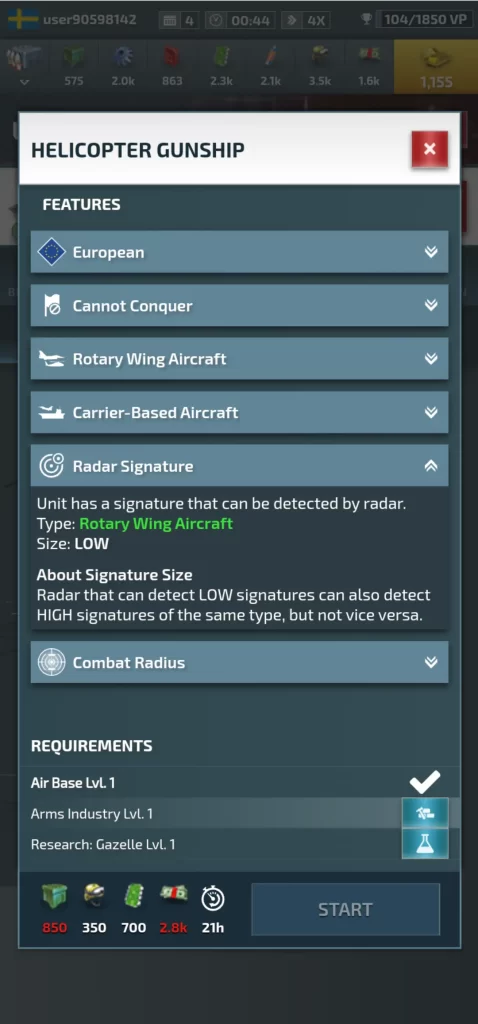
Certain units can be used to bypass certain types of Radar. Most Radars, especially those on non-radar dedicated units, can only see units at a relatively short range, or whatever it is they’re built to kill. You can read up on which units can see what, and use other units to evade their radars.
There is also the use of Stealth units, which can be seen only by advanced Radar Units that can see units with LOW Radar Signatures and by Stealth-detection units such as UAVs, though few units can see all Stealth Unit types either. Infantrymen are all also immune to Radar, requiring direct visual confirmation to mark out.
Unit Types and Damage
Each unit has a type: SOFT, HARD, FIXED WING, ROTARY WING, SURFACE VESSEL, SUBMARINE, and MISSILE. Most units have varying strengths against all different types, assuming they can attack them in the first place since you can’t really expect Towed Artillery to hit a jet-powered Air Superiority Fighter while it’s zipping about at Mach 2. Knowing which units do damage to what type most effectively is key to figuring out which enemies to avoid and fight.
The lightning icon determines what damage a unit does when attacking a target, and the shield icon determines what damage a unit does when defending itself. That’s why your fighter planes still take light damage from defending infantry and their MANPADS even though you can’t directly order infantry to attack planes mid-flight!
Water Crossing
When landing units across the water, you’ll usually need to drop them on a likely defended enemy port city or some other area with a port, marked by an anchor symbol on its shore. They will also take a while to disembark, during which time they are vulnerable.
Some units can ignore this: Naval Infantry and Amphibious Combat Vehicles can land on any shoreline, port or not. They can also easily cross rivers, unlike other heavier or less specialized units that have to look for a land border to the spot they want to strike or travel to.
Be Aggressive!
If you’re coming to Conflict of Nations as a Call of War veteran, one thing you’ll notice in the diplomacy tab is the lack of a Trade Embargo function. This means you don’t have to worry about AI-controlled nations’ fragile emotions, so go invade people as soon as you think your army’s big enough for a war.
You don’t have to worry about the Market falling apart on you after all! You don’t want to end up like our writer who learned this lesson the hard way. Weird, since Trade Embargoes in the modern day are some of the most commonly used weapons in real life.
DOMESTIC AFFAIRS
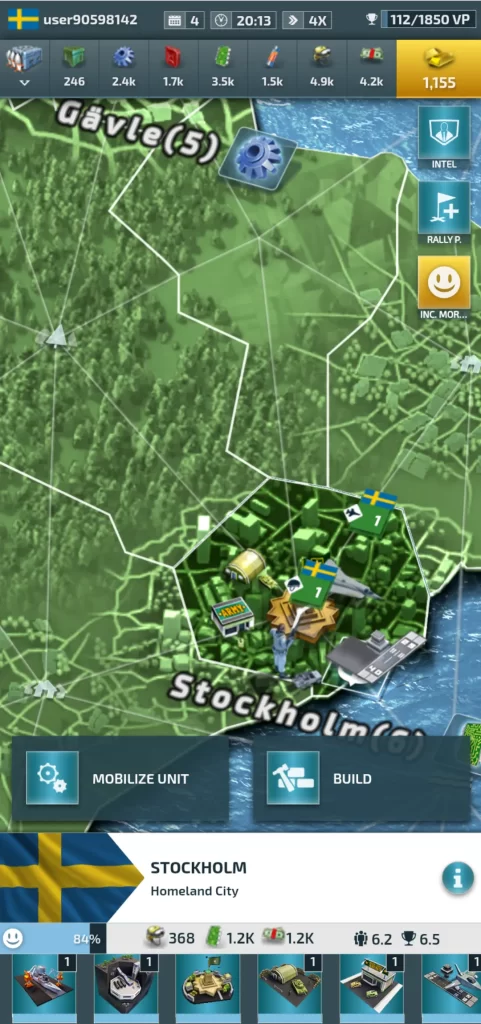
If war is your foreign policy, then what of your home front? Keeping your population and the people you conquer happy and productive is an important mechanic in the game, with Morale and properly ordered Infrastructure construction being key to victory. After all, you can’t make tanks if your GDP is in the dumps!
Airbases Are Your Best Friend
Airbases in every city will make it much easier for your light troops to travel around the country. That’s because it lets units automatically make a free Transport Plane if moving from one Airfield to the next, as long as they have the Airlift ability in their description.
Earlygame, this lets you swiftly move any infantry and Combat Recons around for your initial stacking for an assault or rapid defense, and some of the heavier units become airlift-capable if the game lasts long enough for you to upgrade them. Just be careful if the enemy sends in Air Superiority Fighters to blow the transports up!
Morale And Terrorism
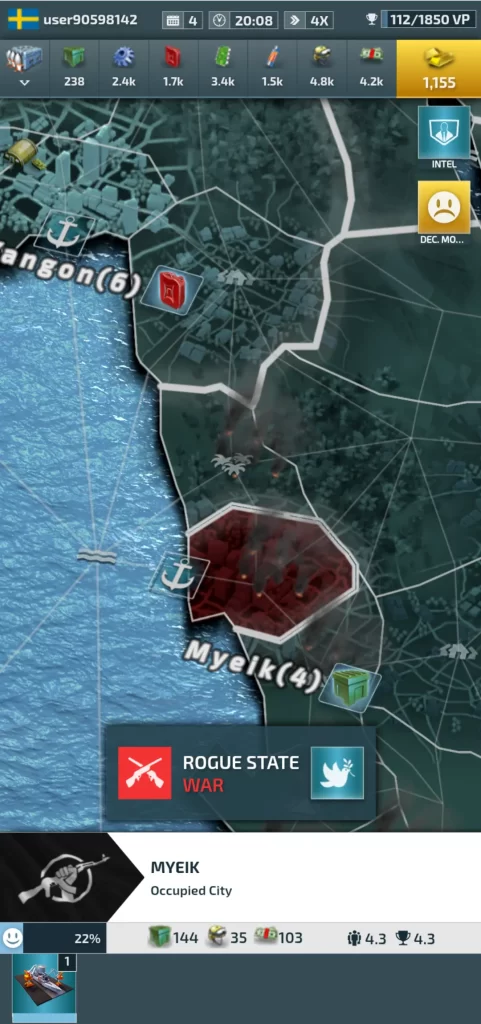
Managing morale starts out relatively easy since your citizens are generally loyal to your nation. Things get harder as you start conquering though: With the destruction of civilian lives and property whether through unfortunate mishaps in combat or deliberate cruelty such as strategic bombing campaigns and missile attacks, you can cause a Territory’s Morale bar to drop.
As such, any newly taken territory is often not as efficient as your homeland, and Cities with low morale in particular will often declare themselves Rogue States if you don’t have a sufficient occupying presence. Heck, using WMDs on the enemy may cause your own homeland’s citizens to turn on you, along with any survivors from whatever you just nuked! You can inspect a city’s Morale gain (or loss!) by selecting it and then pressing the little (i) button near the bottom right of the screen
Quick Builds First
While almost everything takes roughly the entire day to make, some buildings important for initial set up take around 30 minutes, such as the level 1 Army Base and Recruitment Center, and the research for Motorized Infantry, National Guards, Air Superiority Fighters, Corvettes, and Combat Recons.
Getting these quickly will cover all your bases for early battles and give you the punch needed to conquer nearby foes while giving you valuable time to tech up to more advanced units like Strike Fighters, AFVs, and Destroyers.
INTERNATIONAL DIPLOMACY
Diplomacy is both a game mechanic and a means of communication with your fellow players thanks to the Alliance system, Coalitions, and the Newspaper. That being said, the various Alliance stages need some brains to use as smarter, more ruthless players can use them to take advantage of nicer, more gullible players.
Diplomacy Levels
There are several levels of diplomacy in this game, and it depends on how much you trust a player to figure out which of these to pick.
-Peace
The default diplomatic relationship between all nations. You cannot see them, and they can’t see you unless your units get within sight range of each other across your borders. Putting units across another player’s border immediately starts a war, unless it’s a Stealth aircraft or a UAV. Though if the guy you’re spying on is online and sees your UAV or Stealth fighters somehow, they might just declare War in anger!
-Right Of Way
A low-level alliance, Right of Way means you still can’t see each other’s countries but your armies can cross into each others’ land without starting a war. This is a good halfway point if you want an ally but aren’t sure about them since a visiting army will only see what is within its vision and radar range when entering the host’s land, but the host can see everything that enters their country. That being said, this can still allow a false ally to get into a good position to attack your country from an uncomfortable spot deep inside your homeland.
-Share Intel
Even riskier than Right of Way for both sides, Share Intel gives both sides a full view of each others’ territory and units, only to be used with Coalitions (which have a shared victory goal) and friends you absolutely know won’t stab you in the back such as friends from real life or a tightly knit Discord server. Giving this to someone you don’t 100% trust will let them more easily plan an assault around your forces, though you can do the same to them if it’s a two-way intel share!
-War!
So you invaded a country. This happens! War is the failure of diplomacy, when the time for talking has passed and the time for fun has arrived. There’s not much to it, patrolling aircraft and stationary artillery units will start shooting at hostiles on sight, and your forces are ready to butcher the enemy in the name of ideology, national glory, love of their homeland, or profit. This is a no-brainer here compared to Call of War since there’s no worry of AI players slapping your face with Trade Embargoes.
Roleplay Fun In The News, And International Intel too!
A tip for a different way to enjoy the game, the Newspaper is a good way to roleplay… or deceive other players as to your intentions! You can publish news articles to “talk” with other players through the Newspaper. Perhaps you want to make a heartfelt rousing speech about world peace, or pretend to be a comically heartless dictator!
Or spread misleading information as to the state of your nation. The Newspaper system’s got your back. You can also check how well or badly everyone else’s wars are going by checking the Articles section, which shows not just everyone’s diplomatic mudslinging, but also actual news about troop movements and assaults.
With Nukes, Everyone Loses!
Nuclear Warheads are the ultimate weapon. Destructive to the extreme, and with long ranges, Nuclear ICBMs will make short work of whatever is unlucky enough to be under them. They are also highly expensive and render whatever province or city they land on completely barren as they completely annihilate Morale, wipe out a city’s Population count and obliterate most structures inside.
And unlike Call of War WW2, there are no quick ways to rebuild the morale of a glowing nuclear crater beyond throwing Gold into it like a post-apocalyptic wishing well, though Hospitals help. This means you get mostly nothing out of conquering a province you just nuked, and the best you can hope for is that you hit a large army and can at least cross the place undeterred to capture something less… flat.
You better put them on ICBMs as BMs and Cruise Missiles can be intercepted by anything that can shoot at FIXED WING AIRCRAFT. Nukes, like in real life, are best used as a deterrent or at least to force your opponent to burn resources on Theater Defense Systems, hence why it’s in the Diplomacy section.
UNIT TYPES
INFANTRY UNITS
Through the introduction of horse cavalry, cannon, musket, machinegun, aircraft then the tank, the poor bloody Infantry have always been the backbone of all armies since mankind decided those guys over there need their heads busted in. Unlike vehicle units, All Infantry except for Special Forces can capture territory.
Motorized Infantry
The basic infantry unit, gone are the days of pure footslogging from the Second World War. In the modern age, mobility is everything, and even the basic troops get jeeps and trucks to travel where they need to go. Motorized Infantrymen are important in any assault as they can take and hold territory, unlike vehicle units which tend to be stronger in a fight.
They are slightly stronger vs SOFT-type units than HARD-type units, though usually, that won’t matter much since you’ll normally get the bulk of your firepower from vehicle units accompanying the Infantry.
Mechanized Infantry
Infantry blessed with tougher vehicles than just glorified cars to carry them around, Mechanized Infantrymen are a heavier option compared to Motorized units. If Motorized Infantry has jeeps and trucks, Mechanized Infantrymen roll in fancy, thick APCs and IFVs.
These guys are roughly even in firepower against Motorized Infantry but have more HP, and are a particular threat to HARD targets such as MBTs and AFVs since they deal more damage against them thanks to all those Javelin missiles they’re lugging around.
Naval Infantry
Or in more manly terms, Marines! These guys are similar to Mechanized Infantry, being more expensive than Motorized units and stronger too, though they counter Mechanized Infantry specifically: They deal more damage vs SOFT targets than HARD targets!
Mechs running into Marines will typically lose, but Marines running into MBTs and AFVs will be very unhappy about it, unlike Mechs with their big ol’ bazookas. They can also deploy past any shoreline and ignore docks much like Amphibious Combat Vehicles.
Airmobile Infantry
Trucks? APCs? Lame, we have helicopters! Airmobile Infantry are rapid response units useful for attacking swiftly behind enemy lines or quickly reinforcing any units in trouble, provided their destination is within range of a friendly Airbase or Airfield they happen to be standing on.
Stat-wise, they’re similar to Marines but weaker, having similar strengths and weaknesses but overall wimpier stats as they are light infantry. Since they arrive via helicopter, they will get to their destination faster but must absolutely keep an eye out for enemy aircraft and AA guns.
Special Forces
The strongest Infantry unit in the game, Special Forces are real tough nuts that can tear apart other SOFT units like wet tissue and give HARD targets serious pause before attacking them. They get Helicopters much like Airmobile Infantry, count as Stealth units, can Scout to identify enemy army stack compositions, call in Loitering Munitions and Unmanned Ground Vehicles, and ignore terrain cover bonuses when shooting things.
Their downside? They can’t capture territory! These guys are meant to get behind enemy lines, wreak havoc, and scout for your hopefully much heavier main force of vehicles and more basic bread-and-butter Infantry units.
National Guard
Whether it be proper military reservists armed with slightly dusty rifles and jeeps, or angry civilians bolting totally legal .50 cals onto their Toyotas’ backs, National Guard units are mostly low-cost defensive infantry meant to garrison cities. On paper, they’re weaker than Motorized Infantry in a fight. National Guard HP is based on the Morale of the city that mobilized them though, so they can be unnaturally bulky for their price.
And even if their offensive damage power is comparatively pitiful when placed against other Infantry units, they have the odd quirk of having higher (But still unimpressive) retaliation damage than attack damage. You can use them to quickly occupy recently captured areas or to bulk up your rear and hold off any nasty surprises while your main force does the conquering or come to their rescue.
ARMORED UNITS
If your Infantry forms the backbone of your army, then Armor forms your army’s fists. Tougher and harder-hitting than most Infantry units, Armor provides the needed punch to let Infantry do their jobs and capture territory.
Combat Recon
The true starter unit of the game, Combat Recon vehicles are fast movers with relatively light armament and armor, able to threaten or protect infantry and scout ahead for them. They won’t hold a candle to AFVs or tanks though! You’ll often start with one or more of them in your cities. The tutorial teaches you how to make these instead of Motorized Infantry for some odd reason.
Armored Fighting Vehicle
Not quite big enough to be an MBT, not quite puny enough to be a Recon, Armored Fighting Vehicles are light combat units that have a disproportionately large gun attached to their rather small but still armored chassis. You’ll be using a lot of them for the bulk of your fighting, as they are meant to support infantry. They’ll wipe the floor with Combat Recons and lose to MBTs, but not without taking a chunk out of the enemy MBTs first!
Amphibious Combat Vehicle
Take an Armored Fighting Vehicle and build it to assault a beach, and you get the Amphibious Combat Vehicle. Their main draw is being able to disembark from a transport ship on any shoreline without a dockyard or port, unlike all other ground vehicles.
This is thanks to such vehicles usually having watertight hulls, high ground clearance, or snorkels to keep the engine running and the exhaust clear even when underwater. Other than that, you’ll use them similarly to Armored Fighting Vehicles.
Main Battle Tank
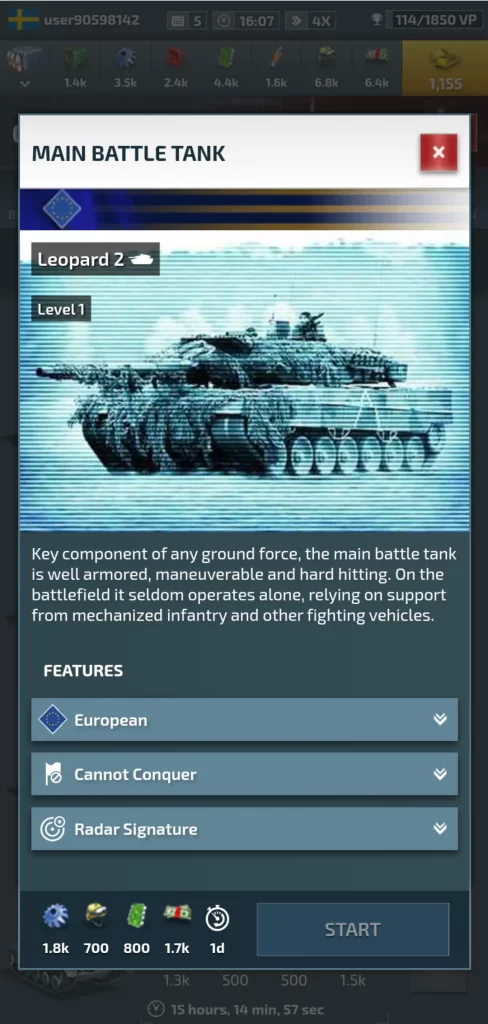
Tanks! A favorite across militaries ever since the latter half of the First World War, though the modern Main Battle Tank as we know and love it only really came to be in the late 1940s in the form of the British Centurion Mk1. These rolling death machines are some of the toughest, hardest-hitting units in the game.
Of course, this also means MBTs are expensive, and like most ground vehicles, they can’t do much against aircraft. You are normally better off with AFVs since they’re cheaper, though a force of these big, expensive beasts may prove a nasty surprise for your enemy.
Tank Destroyer
The concept of a Tank Destroyer, seemingly a stopgap relic from the Second World War before being made obsolete by the MBT, never really died but was simply rearranged for the modern day with modern technology. Made for ambushes and fast movement, Tank Destroyers use mobility and heavy armament to knock out other vehicles safely.
The earlier tier TDs are armed with cannons like their WW2 counterparts, but the more advanced ones are typically wheeled vehicles packing anti-tank guided missiles. That being said, unlike AFVs, Infantry will rip them to pieces in no time, as they aren’t packing heat for SOFT targets and aren’t exactly happy about getting Javelins rammed down their crew hatches.
SUPPORT UNITS
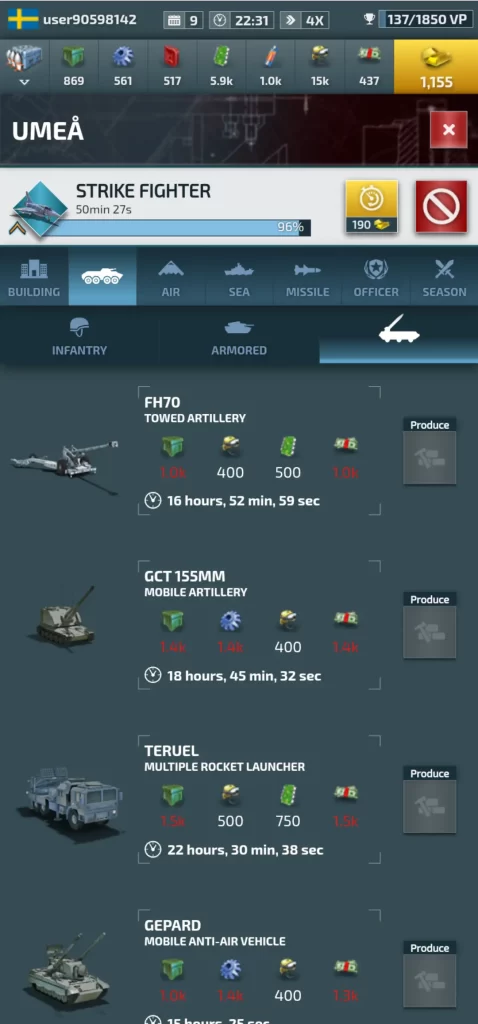
Whether it be through indirect fire, anti-air defense, or providing vision, Support Units are usually defensive units meant to stay some distance behind your forces so they can do their jobs. Keep them safe and they’ll keep your army safe.
Towed Artillery
From the days of castle sieges to the World Wars all the way to now, the idea of throwing large explosive objects at people from far away is a time-tested, effective military tradition. Towed Artillery is the purest expression of this, simply a gun on a pair of wheels dragged around by a vehicle or even by infantrymen in a pinch.
Cheap, long-ranged, and powerful in large numbers, their weakness is the time it takes to get them out of trouble should something make it to firing range of them: It takes a lot longer to hook a towed gun to the back of a truck and drive away compared to just slamming your foot on the gas pedal while driving Mobile Artillery!
Mobile Artillery
Take the gun out of Towed Artillery and bolt it onto a tank chassis, and you get Mobile Artillery. They count as a HARD unit, unlike the Towed Arty which counts as SOFT, though that’s cold comfort for them if they get caught by anything whether it be GIs and Motostrelki, or Abrams and T-90s.
Thankfully, being on tracks instead of having to wait to get hitched to trucks means catching them in the first place is much harder, and anyone trying to get to them still has to survive all the shells being thrown at them from long range.
Multiple Rocket Launcher
Generally a bit passe if you can mass cheaper Towed Artillery, Multiple Rocket Launchers are stronger than Towed Arty on a 1-1 basis, making them less prone to the debuffs you get from overstacking units. They are very, very slightly more effective vs SOFT targets, but you can use them against HARD targets and even SURFACE VESSELS just fine.
Mobile AA
An anti-aircraft solution primarily used against helicopters and UAVs, though also capable of giving approaching jets pause for consideration, Mobile AA Guns lay down rapid fire on anything that flies low or close enough for SAMs to have trouble chasing. They are mostly used as relatively cheap defense for sensitive units like Artillery and Radars, or as support units to move with your main force.
You will likely use Air Superiority Fighters more often early on because they come with built-in radar and are much, much faster, but Mobile AA doesn’t need airfields and will move at the same pace as any army it’s attached to.
Mobile SAM Launcher
Made to deter Heavy Bombers, Strike Fighters, and make it harder for Air Superiority Fighters to do their jobs, SAM Launchers are medium-range anti-aircraft ground units that, as their acronym explicitly states, use Surface-to-Air Missiles. They typically come with their own radar, though one weaker than what a dedicated Mobile Radar or AWACS lugs around. Unfortunately for them, ROTARY WING units fly way too low for SAMs to catch, so helicopters can Wild Weasel them to death if they don’t have AA guns or Air Superiority Fighters keeping them safe.
Theater Defense System
A telephone-pole-sized insult to ICBMs, Theater Defense Systems are basically SAMs on steroids, with stronger radars and the ability to engage Ballistic Missiles and ICBMs far more effectively. While Theater Defense Systems have the same radar range as a Mobile Radar, they can only detect aircraft, so have some Mobile Radars or Air Superiority Fighters around to check for ground targets anyway.
Mobile Radar
One of the first units you should try to get as fast as possible, Mobile Radars allow you to detect anything bigger than Infantry and not slathered in fancy 5th generation radar absorbent paint from a distance twice that of Air Superiority Fighters. This lets you plan around enemy movements or sus out the maneuvers of your erstwhile “allies” in case they don’t plan to be your ally for much longer.
HELICOPTERS
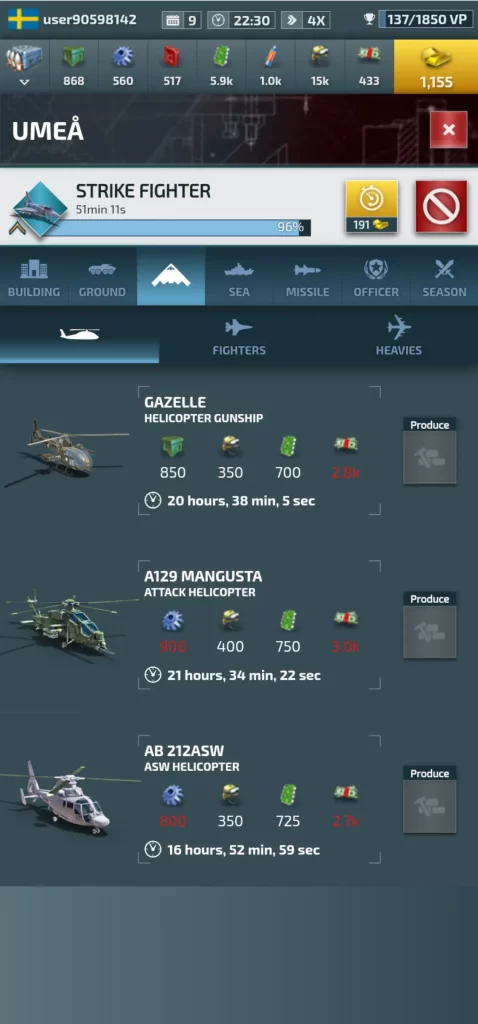
The closest thing to stealth aircraft you can get early into a game, Helicopters are low-flying ground attack aircraft with a LOW Radar Signature even in their lowest tiers. They cannot be targeted by SAMs, but are highly vulnerable to any other thing that can directly attack aircraft, to the point even Strike Fighters and other Helicopters can damage them with moderate effectiveness.
That being said, they are also much more specialized attackers than the all-rounder Strike Fighter, so they tend to hit harder against targets they’re good against. Also, all of them can land on Carriers!
Helicopter Gunship
Helicopter Gunships are meant to snipe Towed Artillery, bully Infantry, and annoy armored vehicles, having strong damage vs the SOFT unit type and less damage vs the HARD unit type. Being Helicopters, they fly way too low for SAMS to blow them up, but dang near any other anti-aircraft unit will rip them to pieces: AA guns and Fighter planes will delete them pretty quickly, and hitting any sort of Warship is a no-go.
They’re special in that they’re the only aircraft other than UAVs to use Supplies instead of Electronics as a resource, so you might want to build some in case you have a tough time gathering the fancy computer chips needed for the admittedly more effective Strike Fighters.
Attack Helicopter
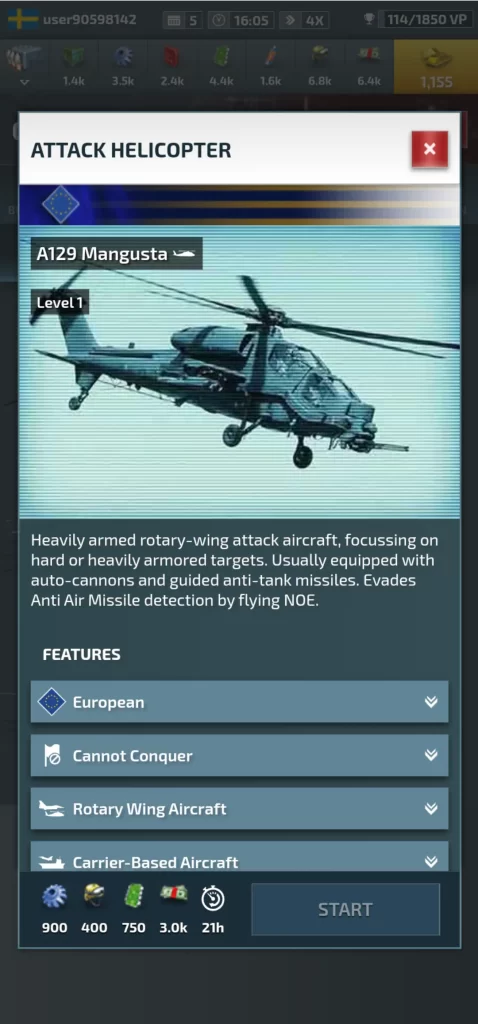
Tankbusters like the AH-64 Apache and the KA-50 Black Shark belong here. Loaded to make tanks do the flying turret fireworks show, Attack Helicopters share many of the strengths and weaknesses of Helicopter Gunships in that AA guns and Fighters will rip them up while flying way too low for SAMS to deal with them.
Their high damage vs HARD targets mean one getting a lucky shot at a Mobile AA gun can render both units in bad shape by the end of a fight, though it’s still not recommended. Use them to bully MBTs and Mobile Arty instead!
ASW Helicopter
Made to fight in conjunction with Naval Patrol Aircraft, ASW Helicopters are the pointy end of your anti-ship aerial assets along with Naval Strike Fighters. They aren’t particularly strong against land targets, ROTARY WING units, and SURFACE VESSELS, but they can wreck SUBMARINES very quickly with their powerful anti-submarine missiles. Since they lack radar or sonar, they need Naval Patrol Aircraft or other appropriate detection units to spot SUBMARINES for them, especially ones that are submerged.
FIGHTER JETS
Except for the UAV, the planes under the Fighter tab are all small, high-speed planes made for direct combat. You’ll use them often as your eyes thanks to their speed and radar, and UAVs being an earlygame stealth detector. All of them, especially Strike Fighters, are a core component of most armies no matter what country you play as.
Air Superiority Fighter
Whether it be a Flanker, an Eagle, or a Gripen, these things are some of the most important units in your arsenal. Your primary aircraft killer and scout, Air Superiority Fighters are radar-equipped jets built to blow other planes out of the sky using their missiles.
They can mildly inconvenience ground units with their cannons in a pinch, and will utterly demolish any plane that isn’t another Air Superiority Fighter, but their real primary work is as defensive scouts and detection: They are likely the first radar-equipped unit you have access to, and while their radar range is rather poor compared to dedicated radar units of equal tier like the Mobile Radar or AWACS, those units are only unlockable via research later and right now, your hotshot flyboys are your eyes across the border.
Naval Air Superiority Fighter
More expensive than Air Superiority Fighters, Naval ASFs are typically a lot more heavily armed early on, but land-based ASFs catch up quite a bit later into the game. Naval ASFs can land on carriers, allowing them to patrol the oceans for threats.
Their use is more offensive: Their higher cost, carrier compatibility, and higher stats compared to normal ASFs mean they’re better for attacking enemy aircraft across the ocean rather than defending, with which sufficiently spammed Air Superiority Fighters mixed with SAMs and Radar units can do the job for cheaper unless you’re a water-locked nation like the UK.
Stealth Air Superiority Fighter
Wallet-breaking post-stall-maneuvering plane-Fox-Threeing marvels of technology, Stealth ASFs like the F-22 Raptor have the highest raw stats of any ASF, are Stealthy, and can see other Stealth aircraft to get into a duel with them.
Their high cost and unseen nature means they’re best used to scout deep into another nation’s territory and knock out sensitive air targets such as AWACS planes, or defend specifically against other Stealth ASFs and attack aircraft trying to do the same so SAMs and other cheaper ASFs in large squadrons can dogpile them to death. Their cost means you won’t build a lot of them unless you’re knee-deep in military funding.
Strike Fighter
Or in other words, tactical fighter-bombers. Strike Fighters can hit land targets fairly effectively and SURFACE VESSELS markedly less so, and are meant to harass land targets who forget to bring their own air cover or SAMs. They can also bully ROTARY WING units, though they have a harder time fighting other FIXED WING jets and will generally lose if an equal number of Air Superiority Fighters of any sort throw missiles at them.
Naval Strike Fighter
Ditch the JDAMs and Mavericks for Exocet missiles and you get the Naval Strike Fighter. Essentially Strike Fighters that can launch from carriers, Naval Strike Fighters are a bit stronger than Strike Fighters of equal tier and can hit all surface targets equally well, including SURFACE VESSELS.
As usual, they’re dead meat if Air Superiority Fighters find them, but they can still scare Helicopters away pretty easily. They are unable to hit Submarines though, so they’re mostly an option so Carriers can hit ground targets in preparation for a naval landing.
Stealth Strike Fighter
Extremely dangerous all-rounders, Stealth Strike Aircraft have all the advantages of Stealth Air Superiority Fighters but have their weapons skewed toward hitting ground targets. That being said, their power against air targets is nothing to sneeze at, as they can give equal-level Air Superiority Fighters a run for their money, though they’re generally better off avoiding them entirely with their Stealth since normal ASFs will generally outnumber them and attacking planes needlessly is a great way for them to have every SAM site in the theater spamming their radar warning receivers with missile alerts. Instead, use their stealth to hit sensitive targets such as Mobile Radars and Artillery.
UAV
Unmanned Aerial Vehicles are drones used to scout out potentially hostile positions to spot exactly what’s over there. While they don’t have Radar or Stealth ability, they do have the Scout ability for ground targets, which lets them see the exact composition of armies within their direct vision range.
They are also a rarity in that, at least with the lower-tier UAVs, they are non-stealth units that don’t automatically cause war declarations upon violating sovereign airspace. The higher-tier UAVs are big enough to lug a single Cruise Missile with them for stand-off attacks.
HEAVY AIRCRAFT
Large, expensive support and attack aircraft, Heavies usually require air escorts over their targets as they are quite vulnerable. That being said, some of them provide helpful utilities for your smaller offensive craft, while others carry strategic firepower that can utterly devastate the enemy if they don’t catch it in time.
Heavy Bomber
Large aircraft meant to destroy infrastructure and large armies, Heavy Bombers have long flight ranges, do bonus damage to stacked units, and can wreck Populations and Buildings. They are strongest vs SOFT Targets, POPULATION, and BUILDINGS, and weaker against SURFACE VESSELS and HARD targets.
They are completely defenseless against Air Superiority Fighters, so make sure they fly with the escort or after air superiority has been achieved over the enemy skies. Heavy Bombers without upgrades can carry 3 Cruise Missiles for extremely long-range attacks.
Naval Patrol Aircraft
Large bombers loaded with anti-ship missiles, sonar, and anti-submarine radars, Naval Patrol Aircraft are meant to fight in conjunction with ASW Helicopters and Naval Strike Aircraft to turn warships and submarines into lovely, environmentally friendly artificial coral reefs. Naval Patrollers do heavy damage to both SUBMARINES and SURFACE VESSELS, though their missiles are mostly tuned to killing the latter.
Their real use against SUBMARINES is to find them, since they can detect surfaced SUBMARINES using their Radar, and submerged ones by flying close enough to use their Sonar on them. After that, Destroyers and ASW Helicopters can submerge them permanently with torpedoes, depth charges, and anti-sub missiles.
AWACS
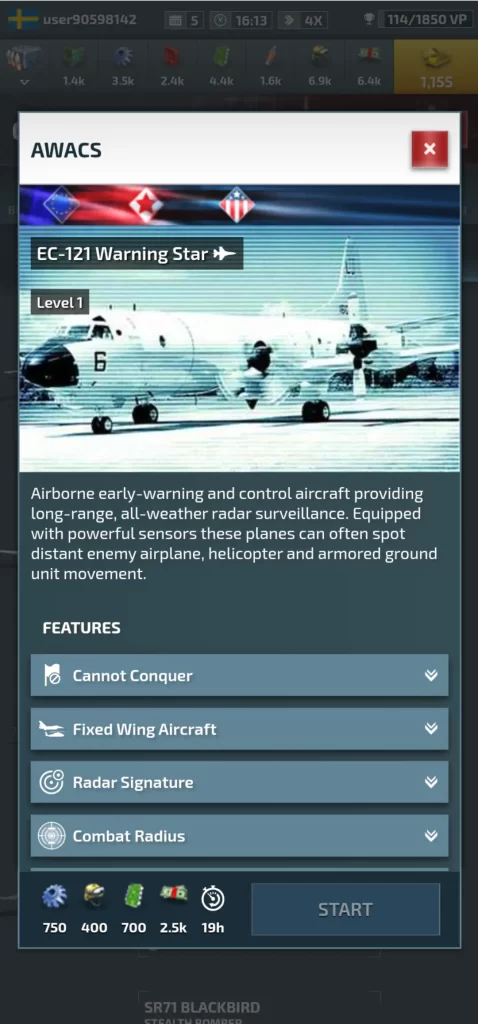
An important unit for coordinating aerial combat, AWACS (Airborne Warning And Control System) planes act as command units for squadrons of aircraft in combat and defense, directing them to targets and warning them of incoming threats such as missiles or AA weapons.
In-game, this is translated as the AWACS plane being a huge flying radar dish, detecting anything bigger than Infantry in a wide radius so your planes can blow them to bits before the same happens to them. Keep them safe so your flyboys don’t fight blind. Later-tier AWACS aircraft specialize in spotting aircraft of any sort, as they can detect aircraft that have LOW Radar Signatures.
Naval AWACS
Naval AWACS aircraft are not only carrier capable but also specialized in looking for helicopters and naval units, as they can detect such units even if they have a Radar Signature of LOW. Other than that, they’re pretty similar to normal AWACS planes of the same tier and are mostly there as a carrier-capable option for ocean warfare.
Stealth Bomber
An aircraft difficult to detect by radar and packing a mean punch, Stealth Bombers are oddly enough a good way to scout your neighbors without starting too much trouble… provided their radars are low-level junk.
Stealth Bombers, unlike normal Bombers, do not immediately cause you or your target to automatically declare War on each other when violating sovereign airspace, because they don’t know they’re there. Of course, no amount of radar-absorbent paint will hide a smoking bomb crater where a hospital or kitten orphanage used to be, so don’t open the bomb bays unless you mean it!
SURFACE VESSELS
Warship fleets are usually built around protecting a Carrier from various air and naval threats such as missiles, planes, and other ships. They become more important the closer you are to water: landlocked countries don’t need them early for obvious reasons, and island nations depend on them heavily for home defense.
Corvette
Small surface warships meant for river or coastal combat. They’re the closest thing to infantry for water combat since Marines actually fight on land instead! They are very weak vs land targets but do noticeable damage to warships of any kind. Their low cost and ability to detect submarines make them useful as screening ships against submarine fleets, though they suffer a 50% HP debuff on the high seas.
Frigate
Frigates are warships relying primarily on medium-range SAMs to kill enemy aircraft, though unlike land SAMs they can engage helicopters… poorly. They will happily eat FIXED WING aircraft alive though, and can attack Missiles. They are also strong against SURFACE VESSELS, but not against SUBMARINES.
Destroyer
Big enough to carry radar, bombard land targets from a distance, and pick fights with both SURFACE VESSELS and SUBMARINES, Destroyers are the standard high-seas escort vessel in your warship roster.
Their complement of AA guns can chip away at approaching aircraft and missiles, and their guns can bombard enemy warships, land enemies, and infrastructure at a distance equal to that of Artillery. The Americans won World War 2 by spamming these like crazy along with their Carriers, perhaps it still works in the modern day!
Cruiser
The closest thing to a Battleship that hasn’t been rendered obsolete by Carriers, Cruisers are large, deadly escort ships that can do everything Destroyers can do except fight Submarines worth a hoot.
Their main ace-in-the-hole is the two Cruise Missiles they can carry to attack targets at long range. These guys mixed with Destroyers and Frigates are typically what you’d use to defend Carriers on the high seas, though Cruisers in particular can go on the offensive pretty well.
Aircraft Carrier
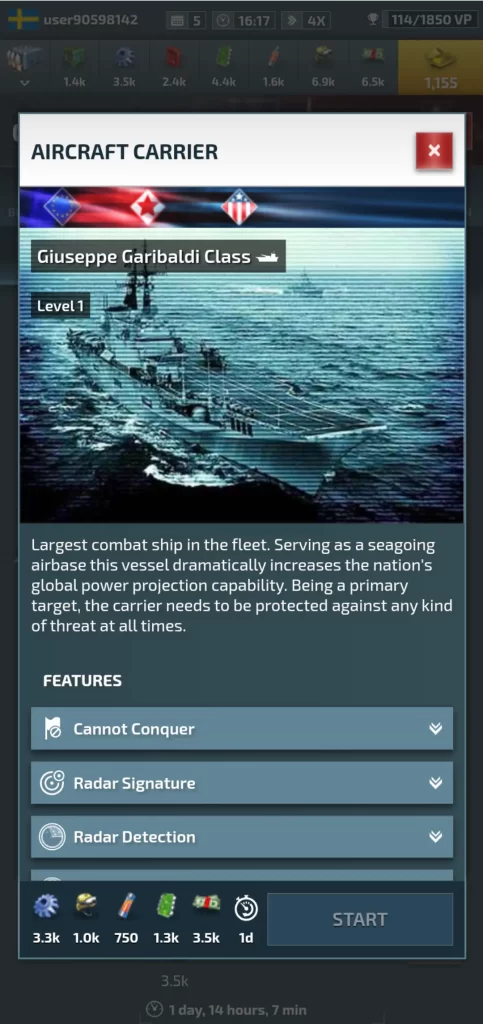
The warship that ended the age of the Battleship, Aircraft Carriers have decent AA gun compliments and of course, the ability to carry 5 Naval Aircraft of any sort, acting as mobile airstrips to extend those planes’ range. Sounds bland, but aircraft are fairly hard to deal with even with all the AA guns warships point at them, so keep these ships protected so their squadrons can bomb enemy fleets from a comfy distance.
SUBMARINES
Submarines are primarily offensive vessels, with Attack Subs meant to strike naval targets unseen, and Ballistic Missile Submarines meant to sneak through naval defenses to deliver a big fat missile onto land targets.
Rather than protecting themselves with weaponry, they hide underwater to avoid being attacked. That being said, they have to watch out for units like ASW Helicopters and Naval Patrol Aircraft, which can find them even when they’re submerged.
Attack Submarine
Attack Submarines have one job: Sneak up on warships and blow them up with missiles. They are automatically submerged when not fighting, which counts as Stealth. They can also reveal other Stealthed Submarines when in Sonar range, and their radars can detect naval vessels with a LOW radar signature. Attack Subs can be devastating, but only if they don’t run into ASW Helicopters supported by anything that can detect them. They get a 50% HP debuff in shallow water.
Ballistic Missile Submarine
Take the Attack Sub, get rid of some of its anti-ship missiles and torpedoes, and stick a pair of big ol’ SCUD missiles and some slightly better radar and sonar in the space you just made. Now you have the Ballistic Missile Submarine.
They have better detection range compared to Attack Subs, but worse firepower when caught without their Ballistic Missile armament. They’re not meant to get into fights, instead, their job is to sneak in range of, oh say, a populated city and drop a ballistic missile on it or two.
WARHEADS AND MISSILES
Missiles are long-range weapon systems capable of hitting targets with Conventional, Nuclear, or Chemical payloads. Conventional Warheads are usually a good idea, while Chemical and Nuclear Warheads come with their own set of problems, both practical and political, despite their much higher killing power.
To fire these Missiles, you need to load Warheads onto their launch platforms. Pictured are ground-based missile systems, but certain other units like Ballistic Missile Submarines and Heavy Bombers can also load up Warheads to launch Ballistic and Cruise Missiles depending on the unit.
Conventional Warhead
Ordinary bombs, but big enough to stick in an ICBM. They’re the cheapest and most practical option for general use with Ballistic and Cruise Missile attacks. They simply do a ton of damage to whatever they hit, without being so overly destructive that the city you just hit isn’t worth taking afterward.
Chemical Warhead
Geneva Convention? Who needs it? Chemical Warheads deal less damage to infrastructure and HARD targets and incredibly severe damage to SOFT targets. Chemical Warheads will force both you and your enemy to use higher-tier NBC-protected Infantry to capture whatever it is you just gassed since they leave a deadly miasma wherever they explode. Note that using these willy-nilly has a chance to anger your own civilian populace and reduce morale across your country.
Nuclear Warhead
Do we really need to tell you what a Nuke does? Nuclear Warheads utterly obliterate anything that isn’t hiding in a Secret Bunker, to the point that it might not be a good idea to use them willy-nilly: They will usually damage a City’s Population, Morale, and infrastructure so heavily that they may not be worth capturing afterward! If you use a Nuke, you better make sure you hit your opponent’s main army stack with it.
Just remember, if chemical weapons make your civilians unhappy, nukes are even worse in that regard. Use of Nuclear Warheads is also announced in the Events tab and Articles with the victim and user shown, allowing players to decide you’re a global existential threat and gang up on you. Or scare them away, it depends on who read the announcement!
Ballistic Missile Launcher
Or in more accurate military terminology, Battlefield-Range Ballistic Missiles. Ballistic Missiles are the middle brother between ICBMs and Cruise Missiles. These aren’t accurate enough to hit individual army units so you can only target cities and province centers with them, though anything in those targets gets blown to pieces too! They hit harder than Cruise Missiles and have the advantage of loading Conventional and Chemical Warheads over ICBMs which can only carry Nukes.
ICBM Launcher
Almost totally unstoppable and highly expensive, Intercontinental Ballistic Missiles are the last word in long-range explosion delivery. Most unit types, even anti-air ones, cannot engage them, making them the ideal delivery system for Nuclear Warheads… on paper. They do have one thing that can mess them up: Theater Defense Systems have surface-to-air missiles big enough to chase them as they fall back into the atmosphere!
Oh, and they can’t carry anything that isn’t a Nuclear Warhead. Generally, keen-eyed players will have a lot of Theater Defense Systems up and running by the time anyone can reliably field nuclear ICBMs in any useful number, making these difficult to use. Though you can perhaps use that to your advantage since that costs your opponent resources they could have used on a ground invasion.
Cruise Missile Launcher
Cruise Missiles are the shortest range of the 3 large missile types, and the smallest too. While this seems like a disadvantage, their smaller size compared to BMs and ICBMs allows them to be loaded onto aircraft such as UAVs and Bombers, essentially turning those aircraft into fast, long-ranged missile trucks.
They don’t hit as hard as Ballistic Missiles, but they are accurate enough to hit individual units even while they’re moving. The one pictured is a ground-based system, as you have to load the warheads onto it just as with aircraft.
OFFICERS
Officers are powerful units who aren’t just highly destructive on their own but can also provide passive buffs for the army they’re stacked in. They are markedly more powerful than units of similar type and tier and cost a ton for it.
Other than the bigger stat numbers though, they typically share the same strengths and weaknesses as similar non-officer units. You can also only deploy one of each officer type at a time. As with most units, you can unlock higher-tier versions of them via Research.
Infantry Officer
Infantry Officers come with an elite unit of soldiers capable of ignoring enemy terrain bonuses. He gives a general set of buffs to Infantry units and a smaller buff to Armor units.
Other than that and their much higher stats, you can consider them to be similar to Motorized Infantry, as they are neither airmobile nor amphibious, and their stat spread resembles meatier, more murdery Motorized Infantry with the same bias toward anti-SOFT unit damage.
Airborne Officer
Airborne Officers are similar to meaner, beefier Airmobile Infantry. With a similar but stronger stat spread but also the ability to ignore enemy terrain bonuses and the Airmobile feature, these guys can assault positions quickly from any nearby Airbase. They give a large amount of ATK to Helicopter units and a more spread-out set of buffs for Infantry.
Tank Commander
Usually a veteran MBT commander, Tank Commanders give a powerful overall buff to Vehicle units and cause any Infantry in their stack to drive their trucks faster. As for their power, they can demolish most ground units of equal tier with contemptuous ease, though they’re slightly better at killing other HARD targets such as MBTs.
Rotary Wing Officer
Veteran helicopter pilots, Rotary Wing Officers are very good at providing close air support, with their heavy damage against all ground units and their ability to at least heavily inconvenience SURFACE VESSELS. They give less ATK to friendly Helicopters than Airborne Officers do, though they also make Helicopters and Fighters fly faster with their presence.
Fixed Wing Officer
Fighter aces with strong firepower all around against anything other fixed-wing aircraft typically deal with, Fixed Wing Officers are generally a big fat problem whenever they appear. They’re basically Strike Fighters and Air Superiority Fighters mixed together and given much fancier missiles and bombs, though with a mild bias against air targets.
They also buff ATK for other fighters and make Fighters and Helicopters move faster across the unfriendly skies. Just like the Rotary Wing Officer, their attacks are strong enough to really annoy Surface Vessels though it still isn’t their strong suit.
Naval Officer
Salty old sea dogs with an uncanny eye for naval gunnery, Naval Officers and their ships have relatively weak firepower against ground units, are a noticeable threat to attacking aircraft and submarines, and can snipe other, lesser warships all the way to Davy Jones’ locker.
While their extreme power against other naval vessels is nothing to scoff at, they’re actually quite useful as escorts thanks to their relatively good anti-aircraft gun complement. They can also carry 2 Cruise Missiles! As expected, they can buff other surface warships in their stack.
Submarine Commander
Hard men unfazed by the crushing pressure of the abyss, Submarine Commanders are not only Stealthy, but they’re also quite good at hunting other subs and warships, though unlike the Naval Officer, they are unable to attack other targets.
They’re highly specialized hunter-killers much like the Submarines you’ll put under their command. They can make SURFACE VESSELS move faster and give other SUBMARINES a stat buff across the board. And just like the Naval Officer, they can launch Cruise Missiles. As a final note, they don’t suffer the debuff other Submarines get from being in shallow water.
If there is any tip you should learn from this guide, it’s to be aggressive early into the game and not to let other nearby nations overtake your progress lest they gain the advantage in resource count. Hesitating, especially in 4x Speed maps, can lead to big problems down the line as you won’t have the army bulk or resources necessary to mount a defense if you start out trying to turtle. Also, build lots of Strike Fighters, and don’t let your neighbors do the same!
And this ends our Beginner’s Guide for Conflict of Nations: World War 3. If you have your own tips, don’t hesitate to leave them in the comments below for other aspiring commanders to read!

